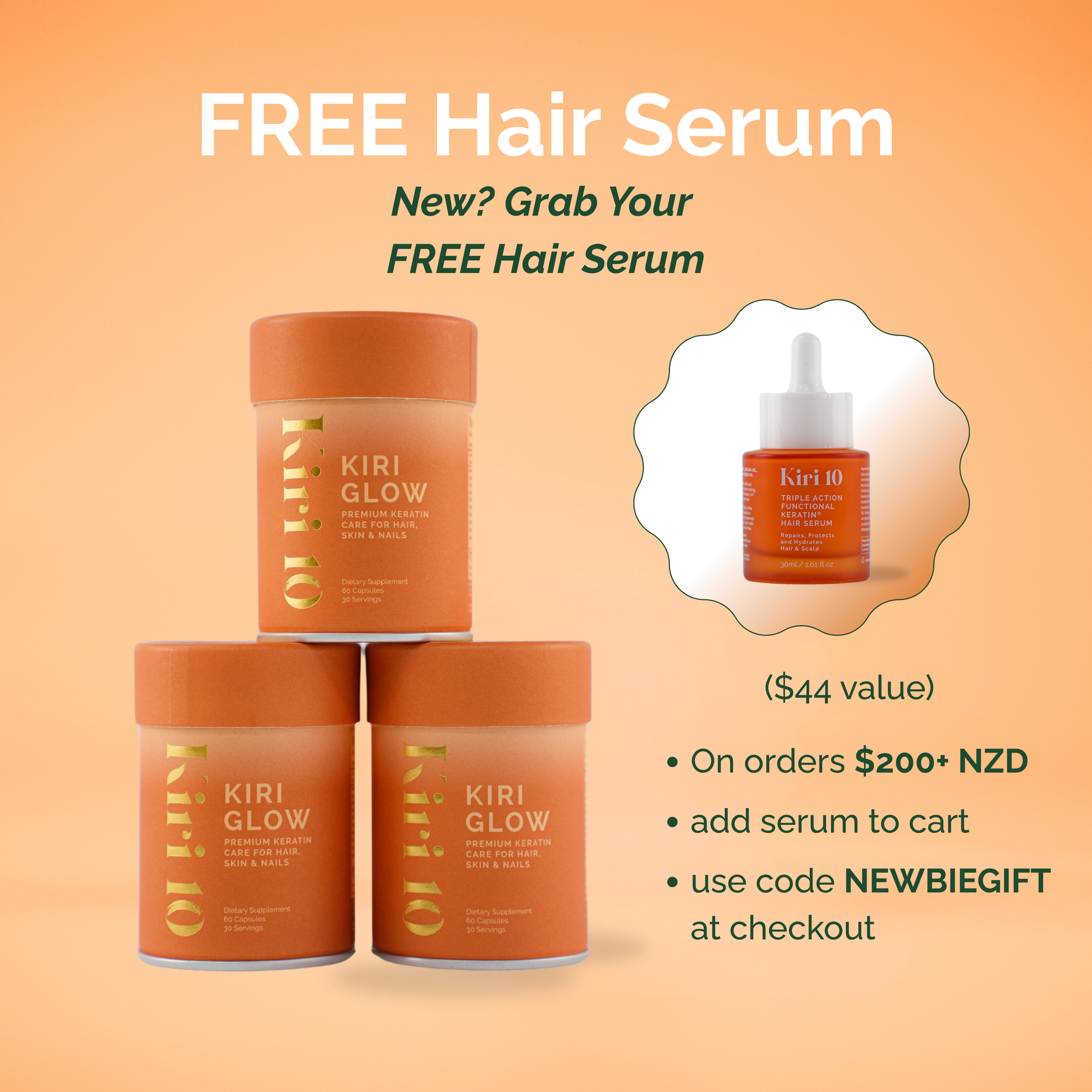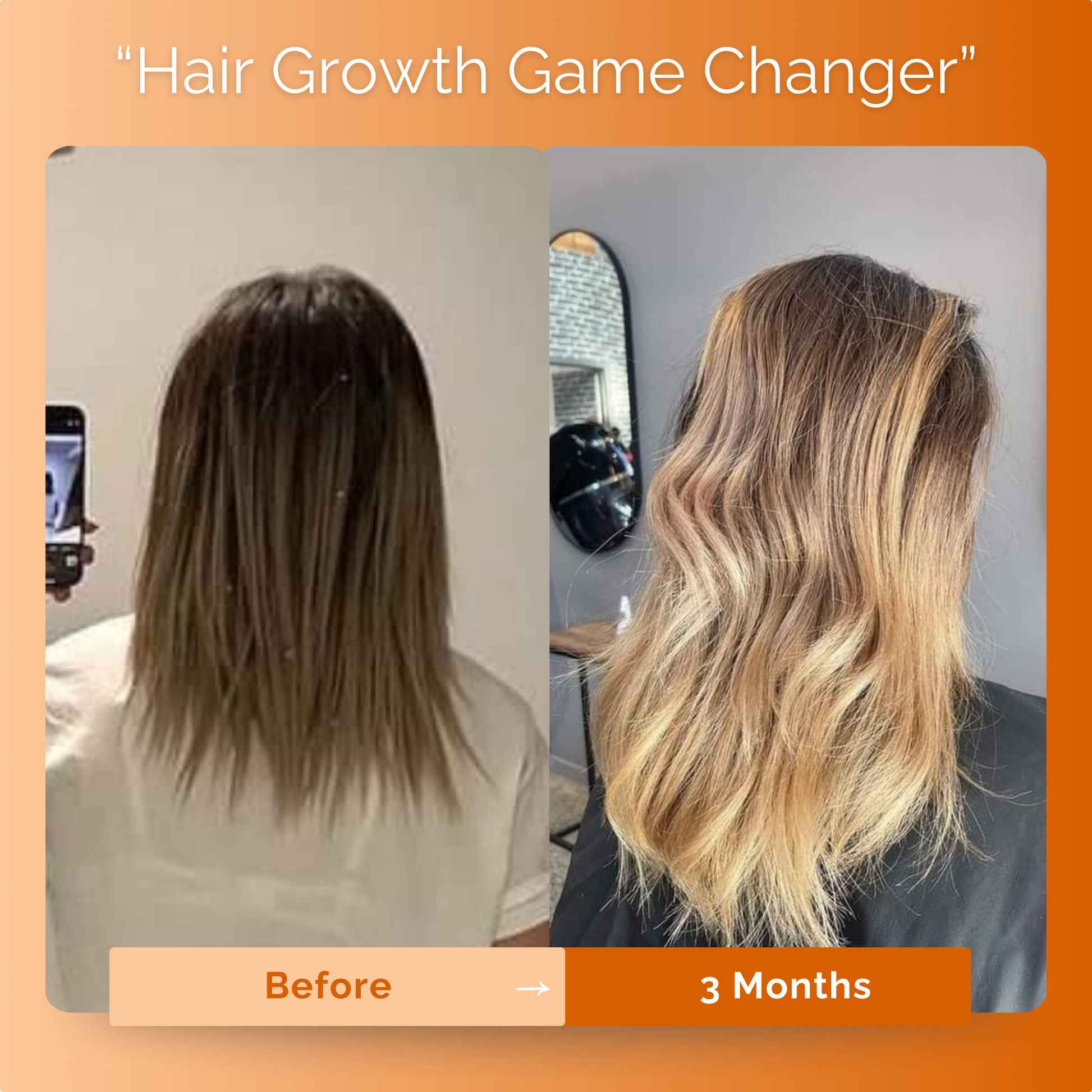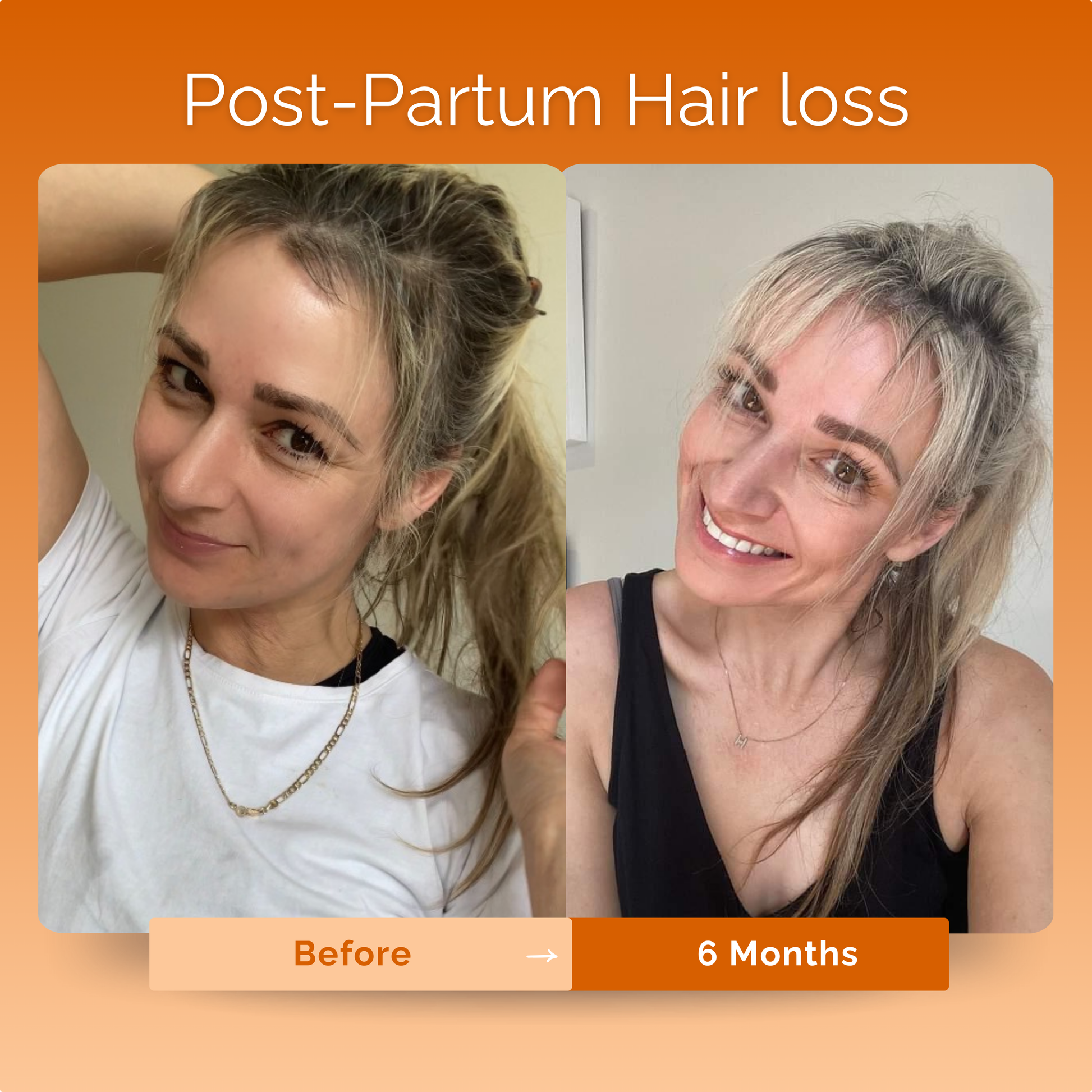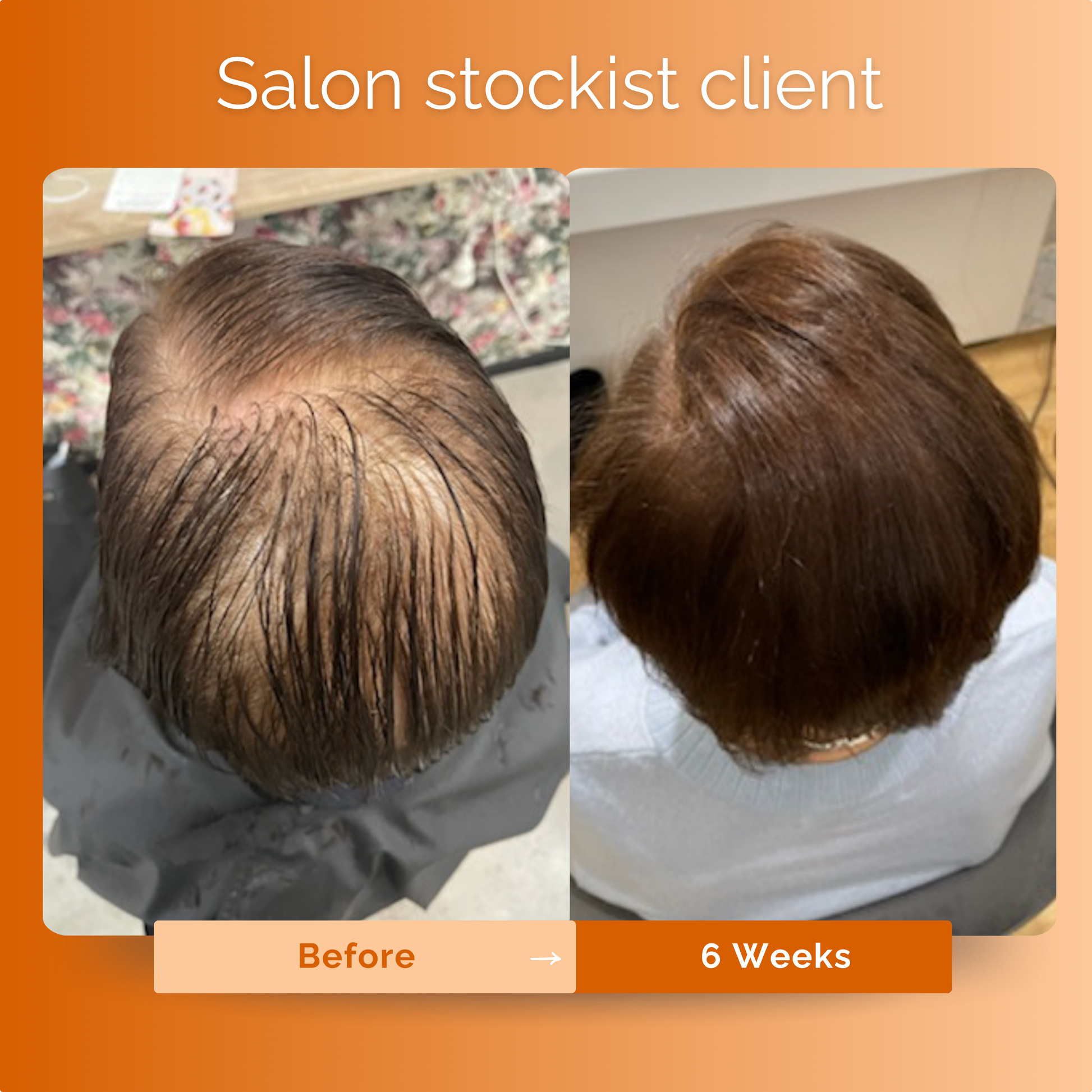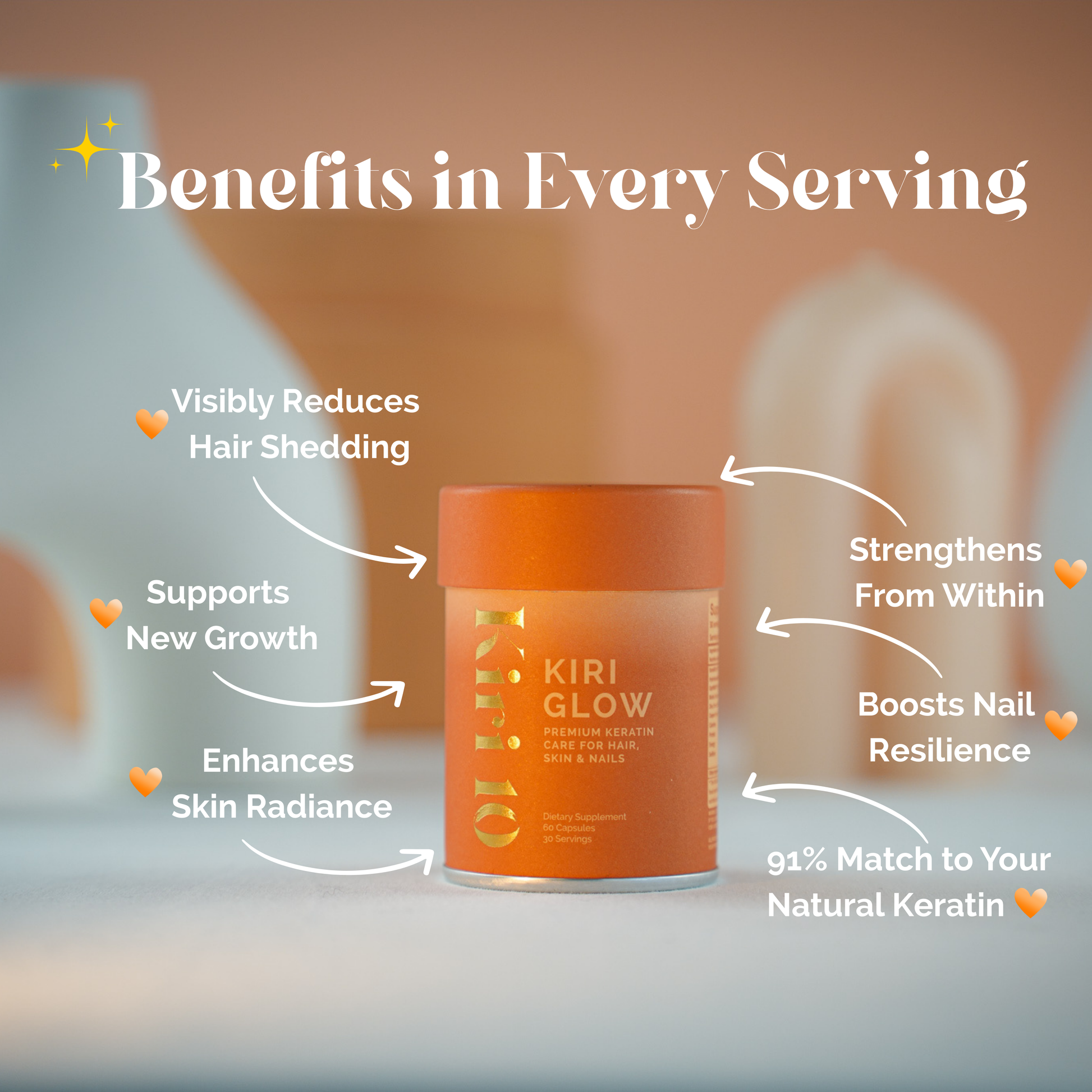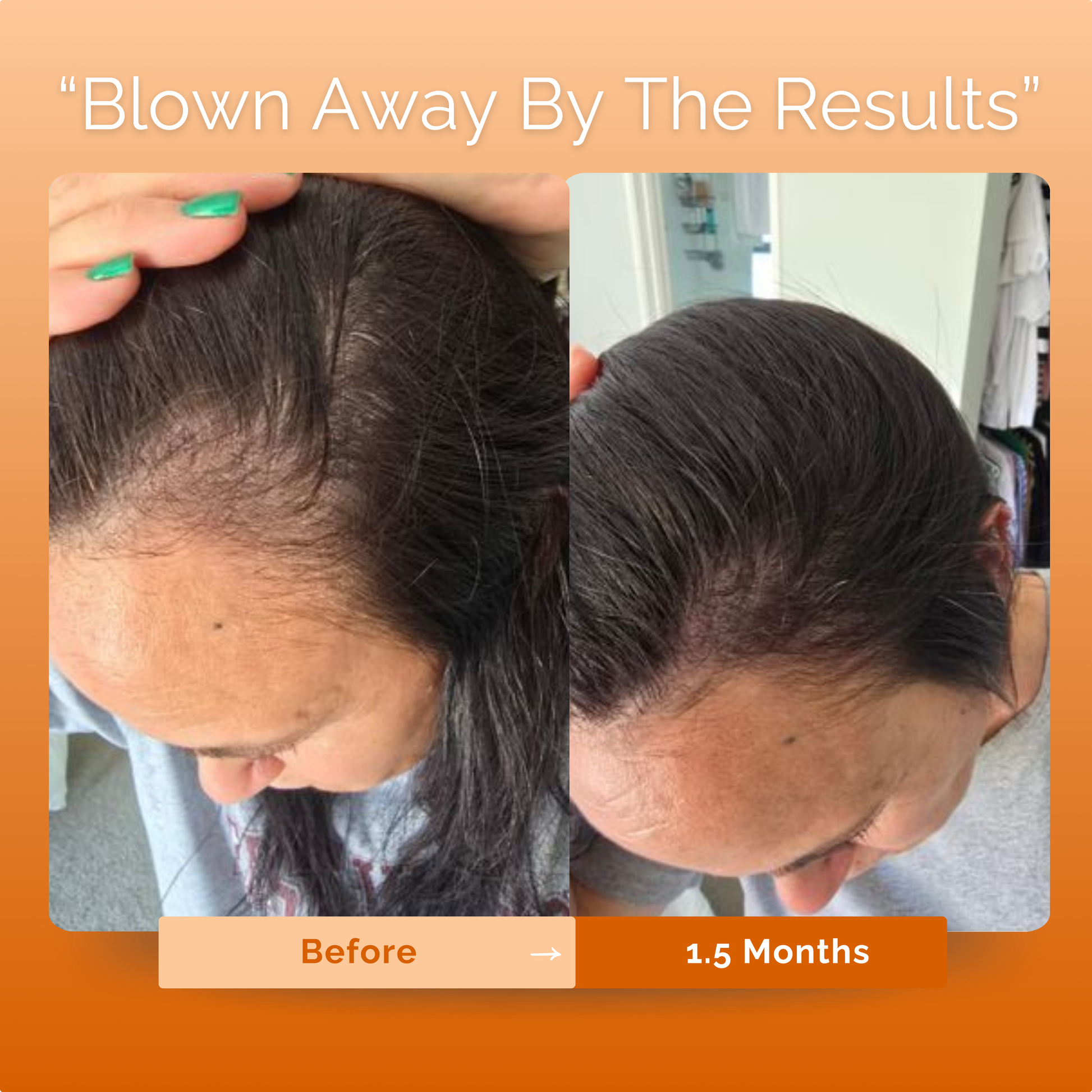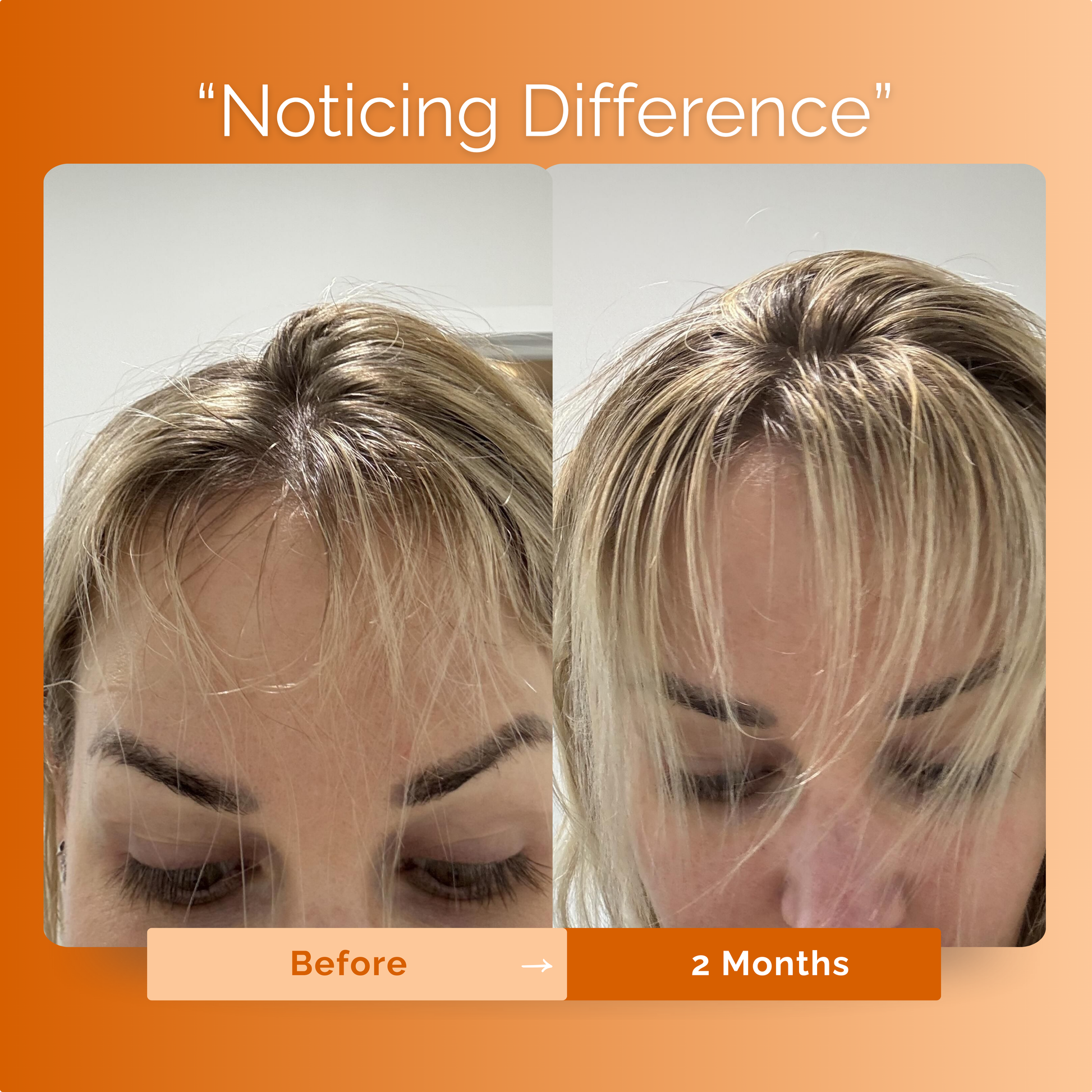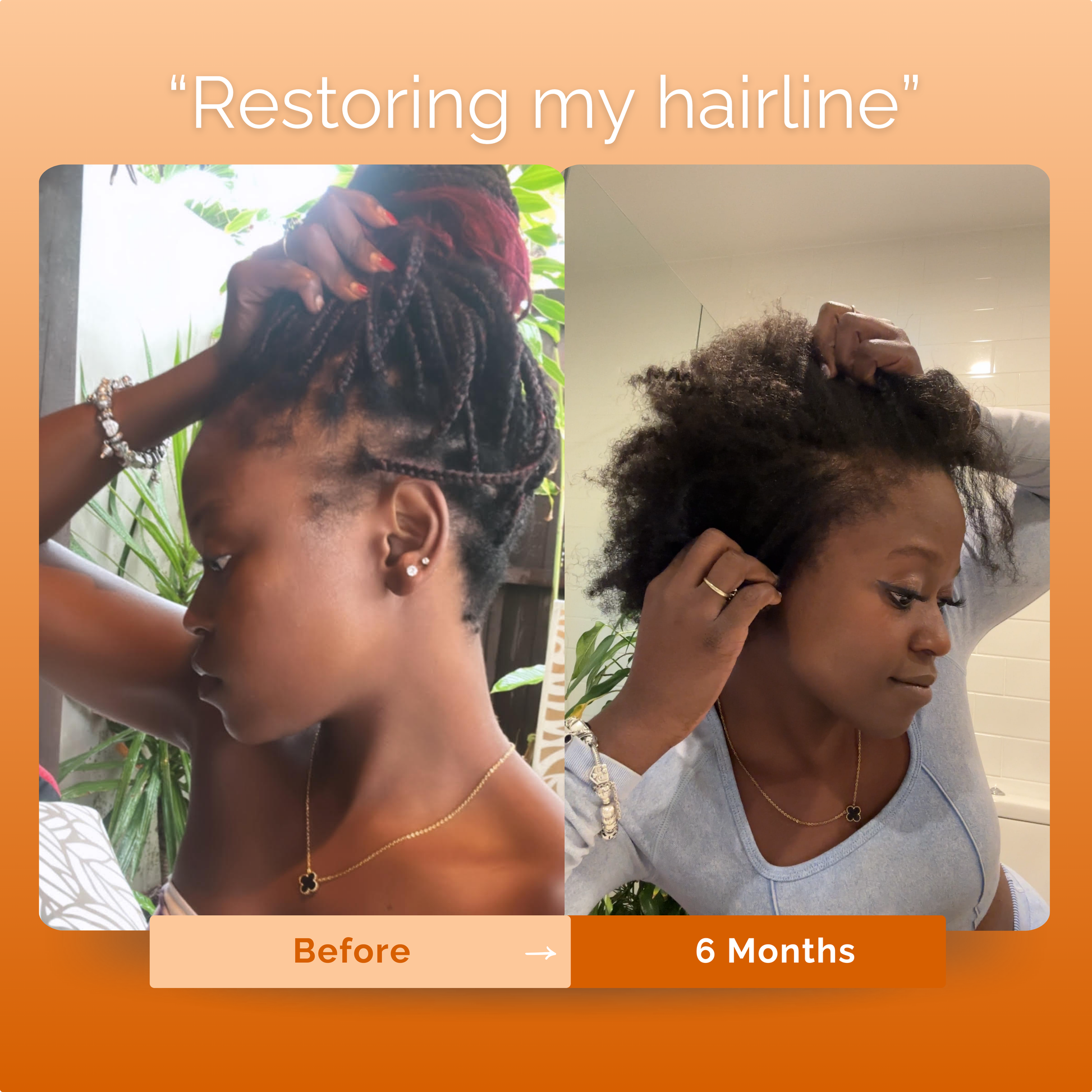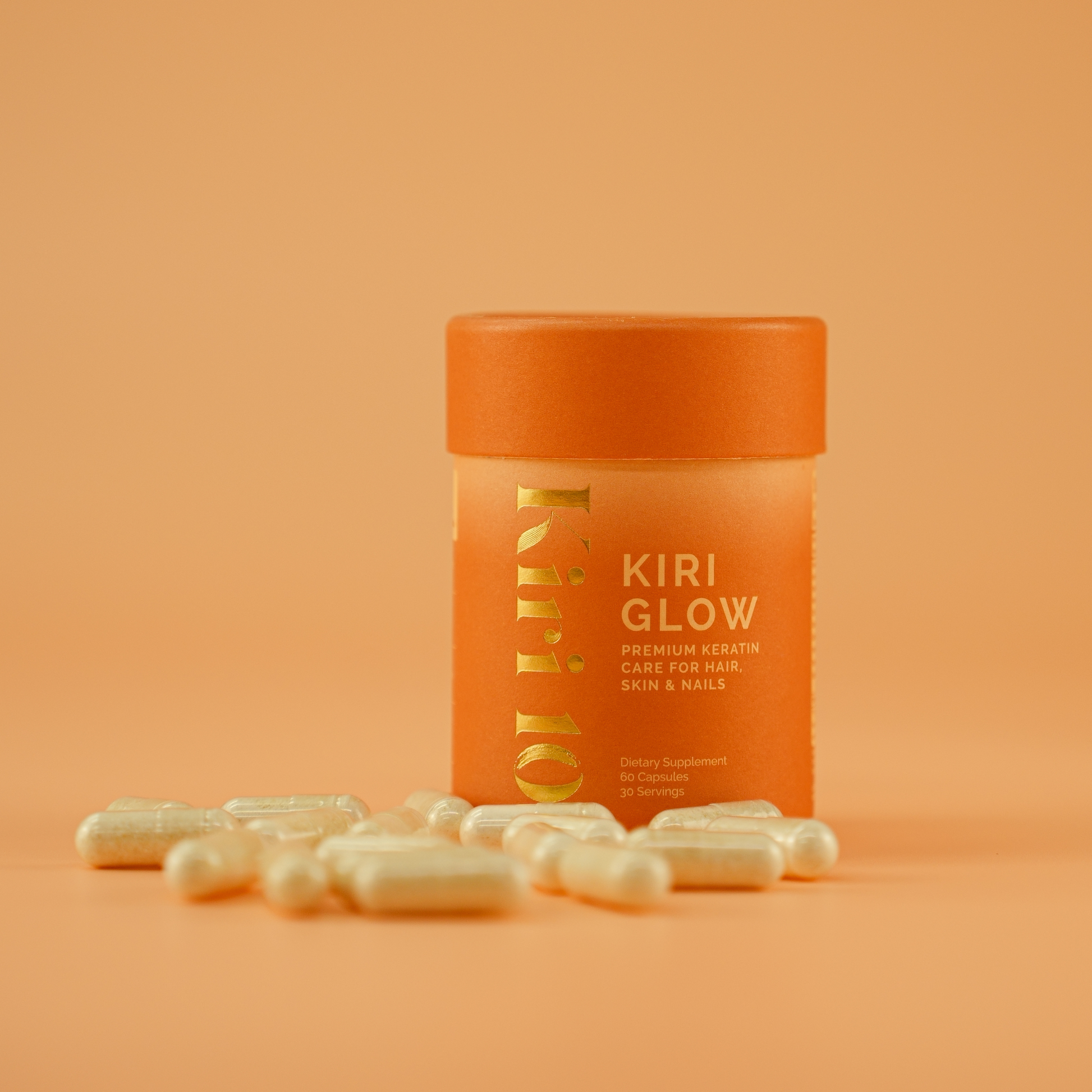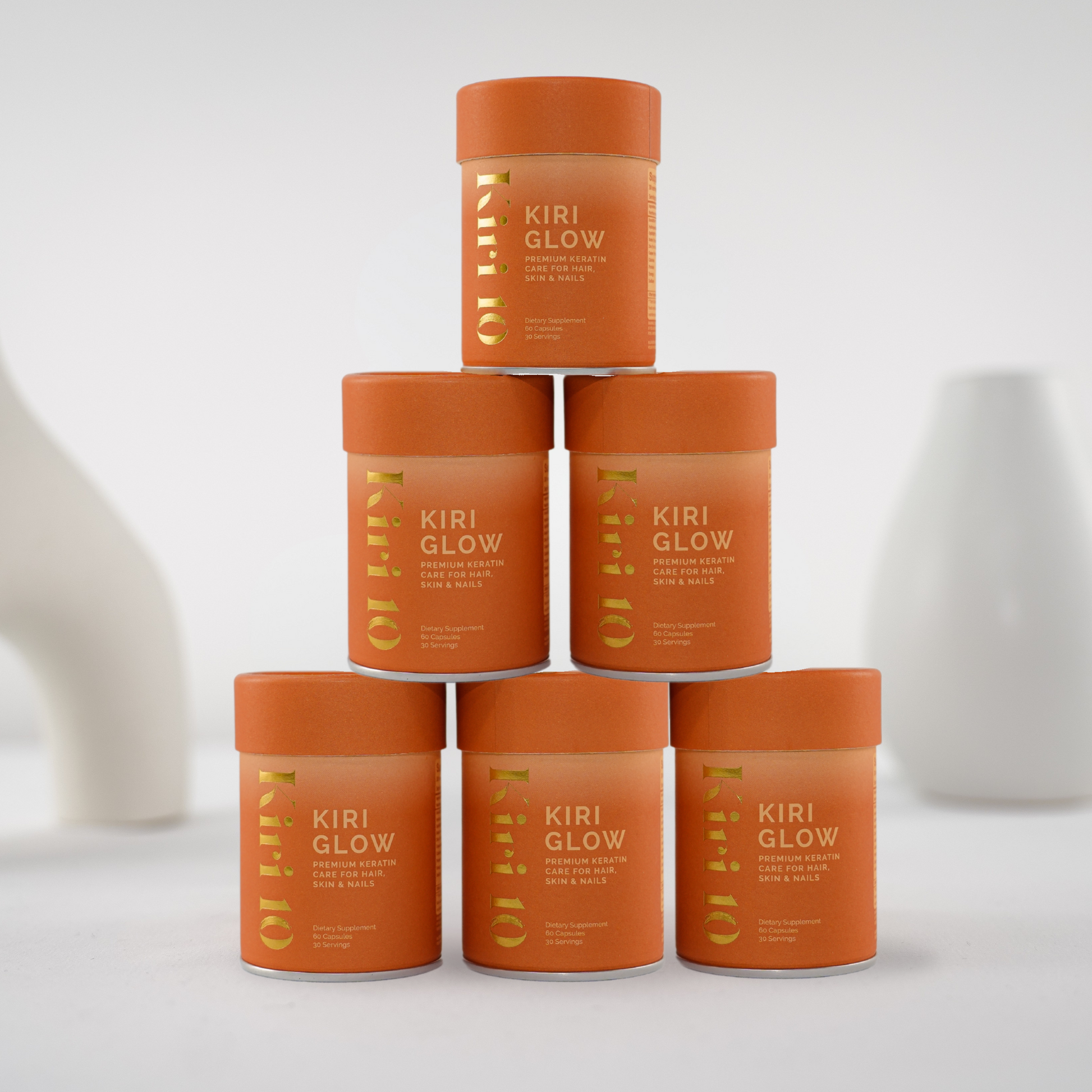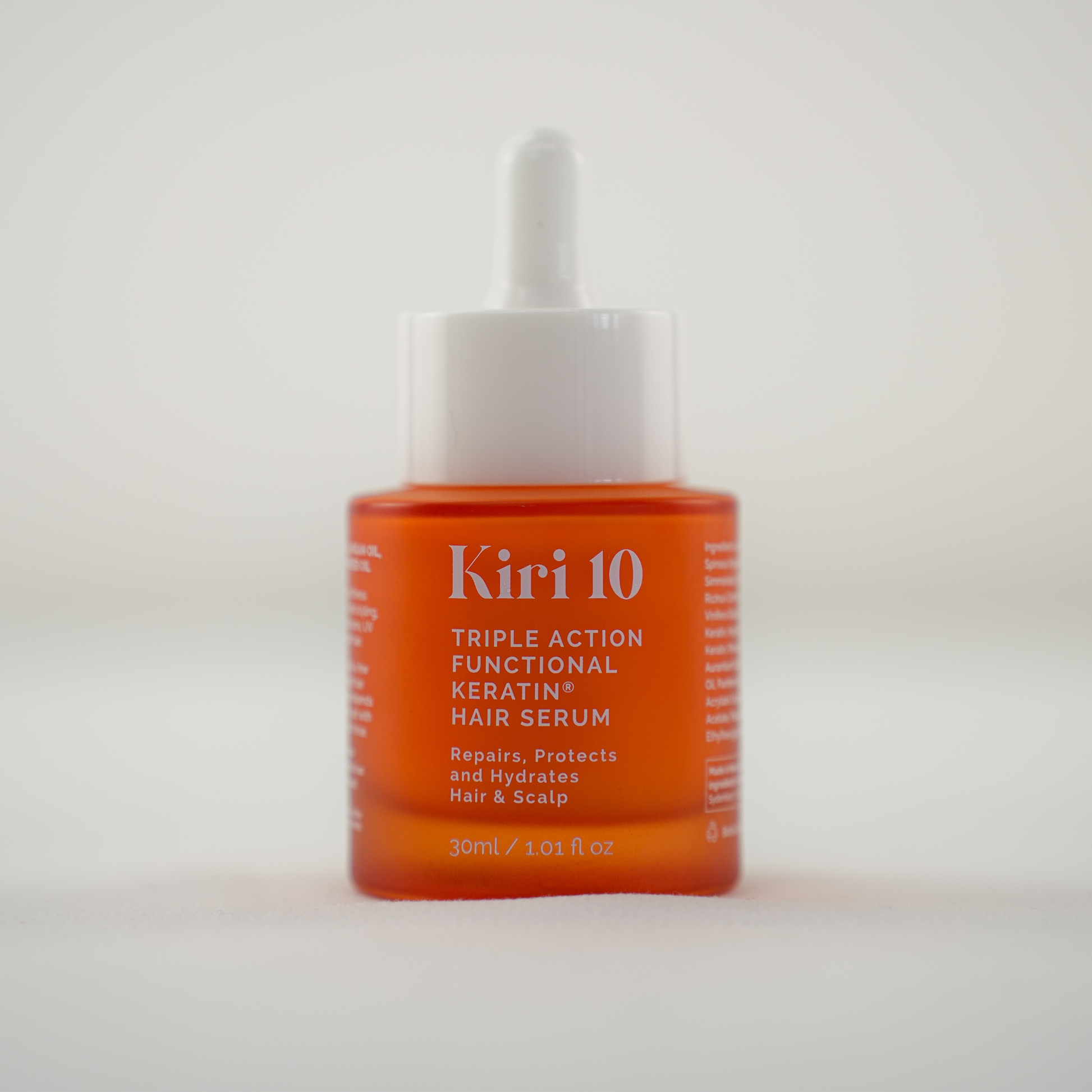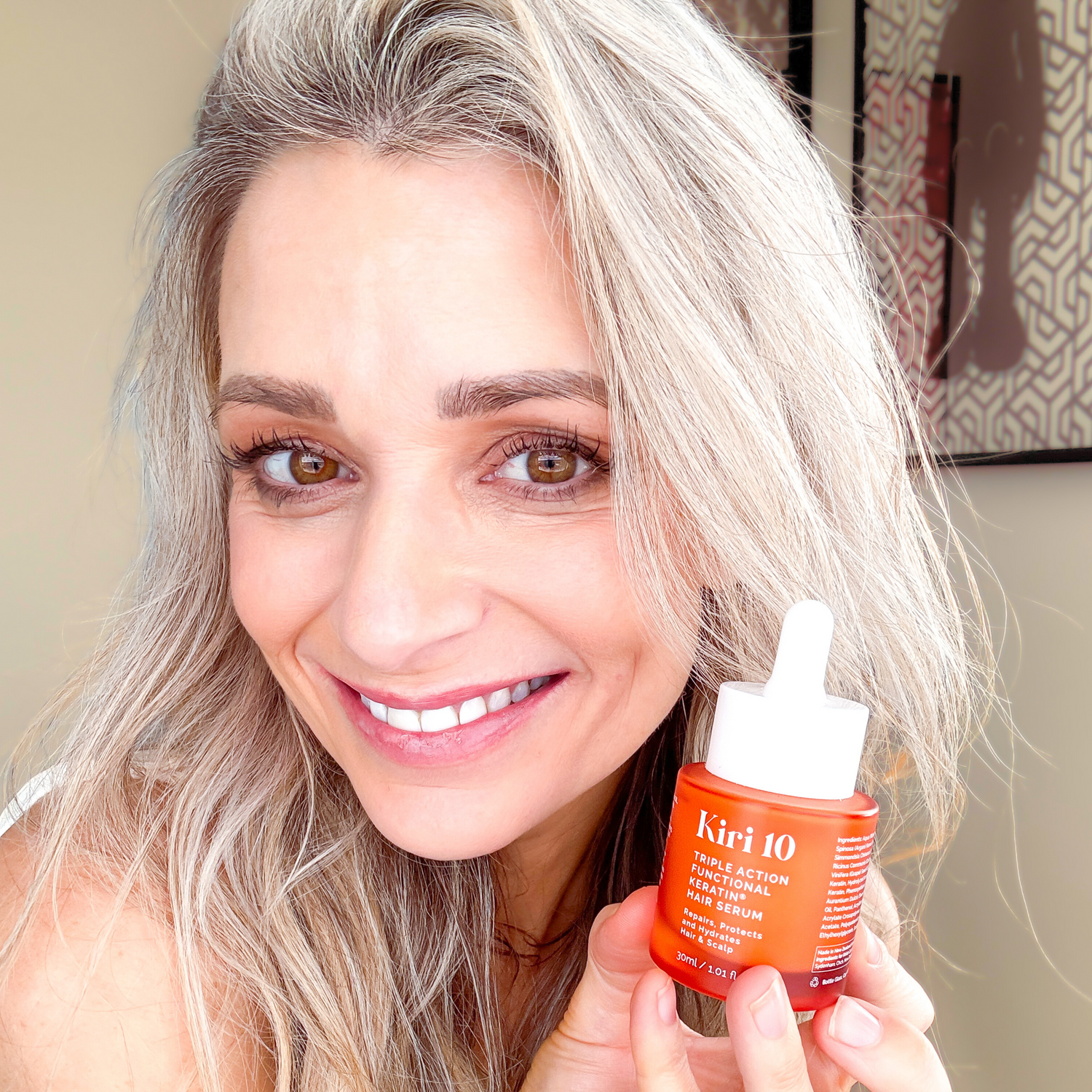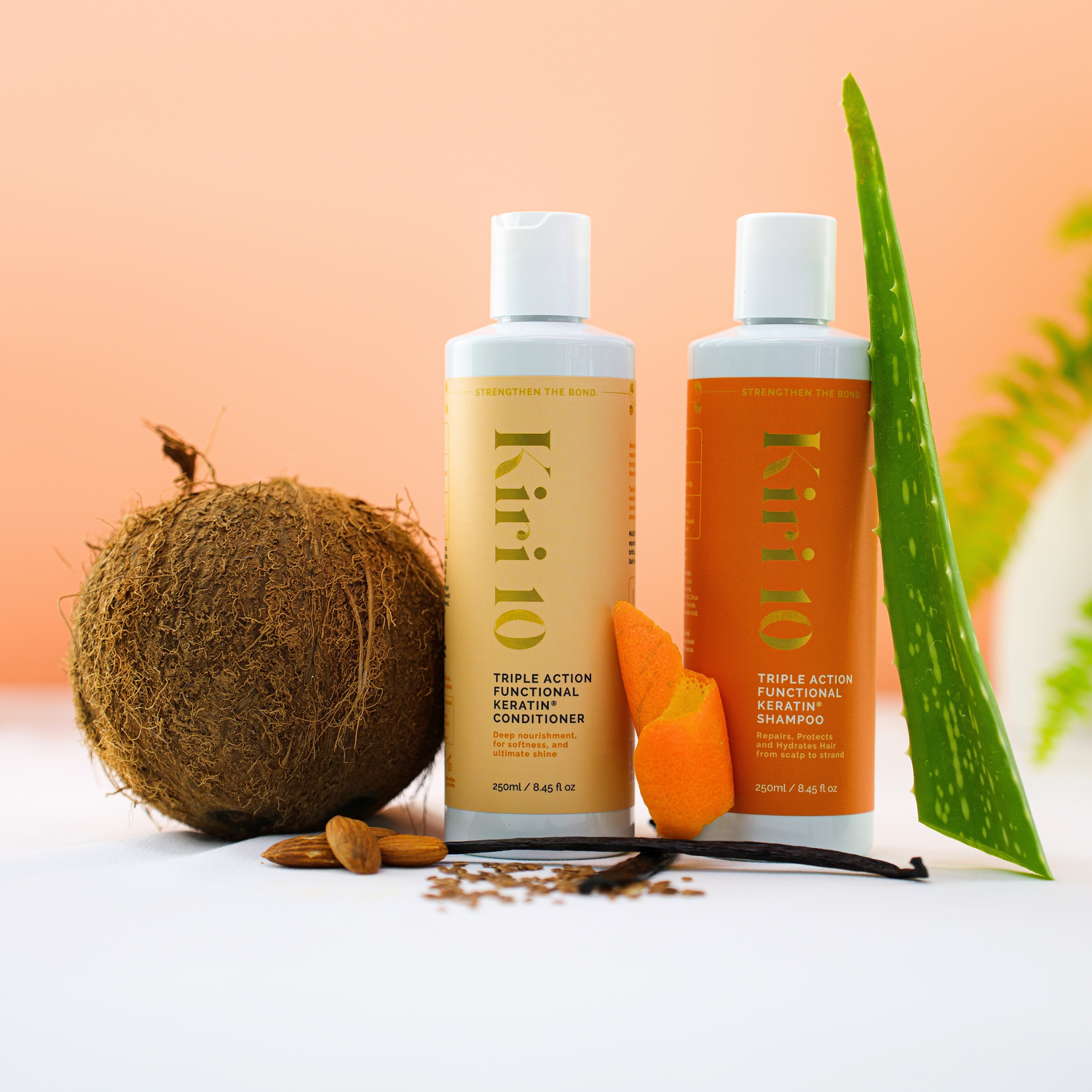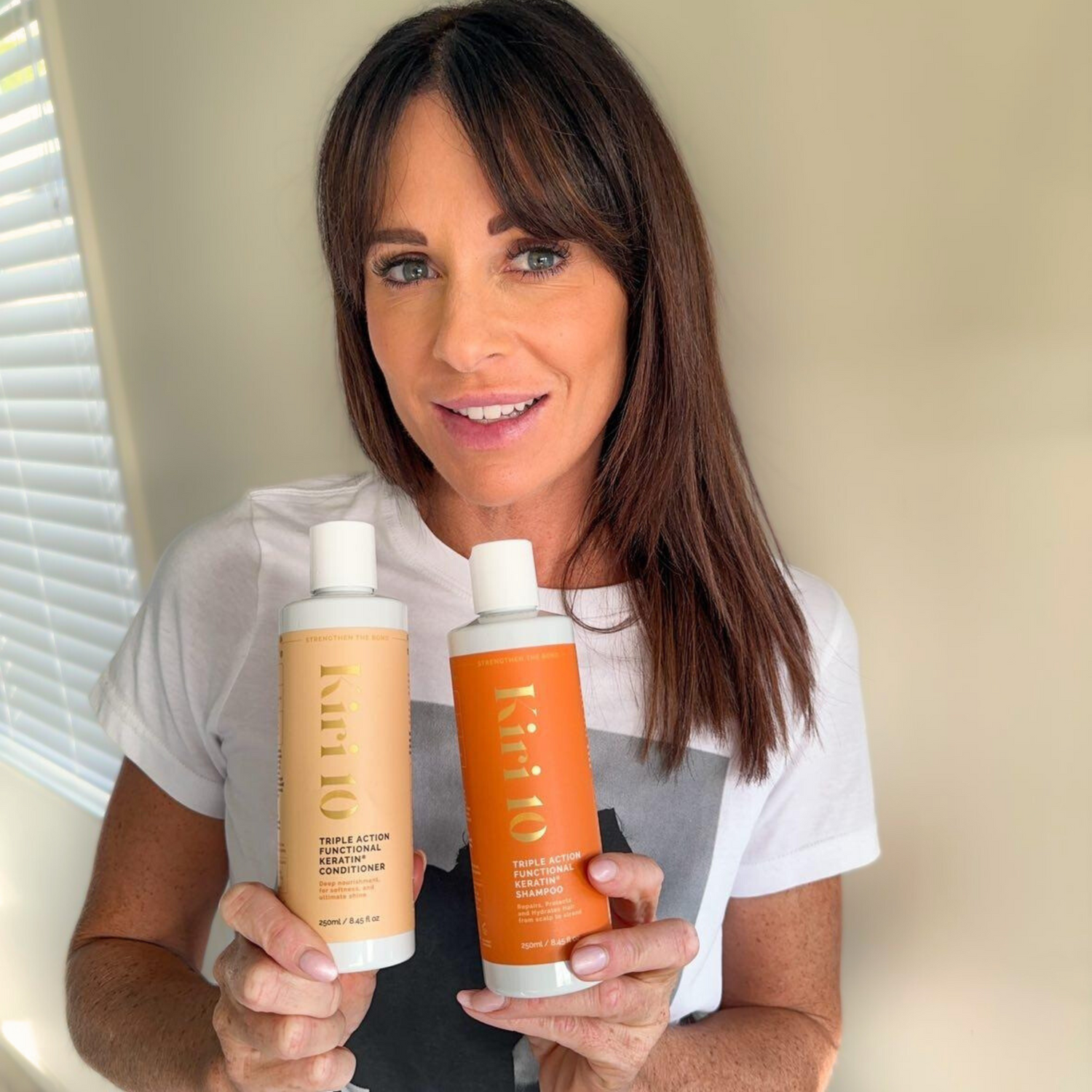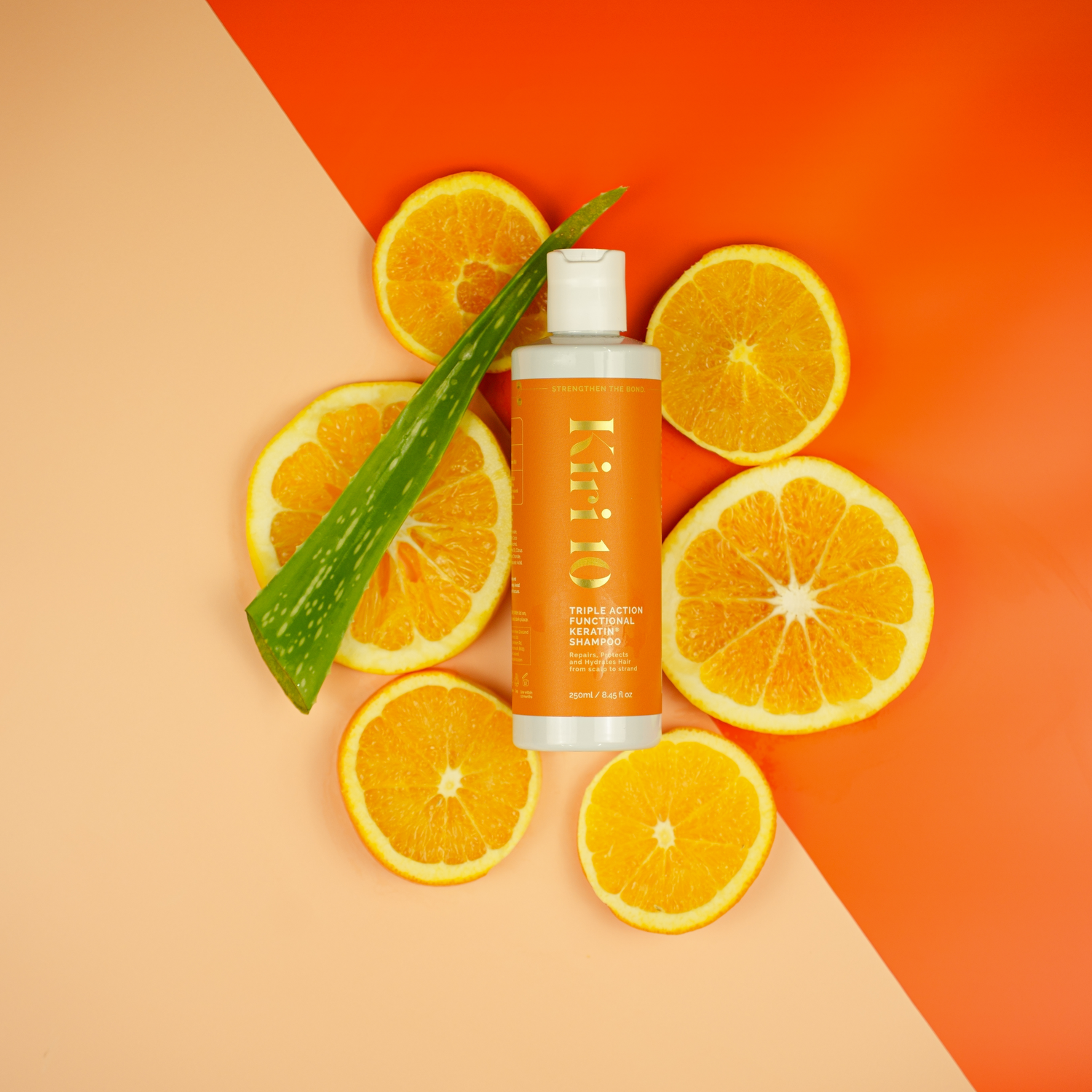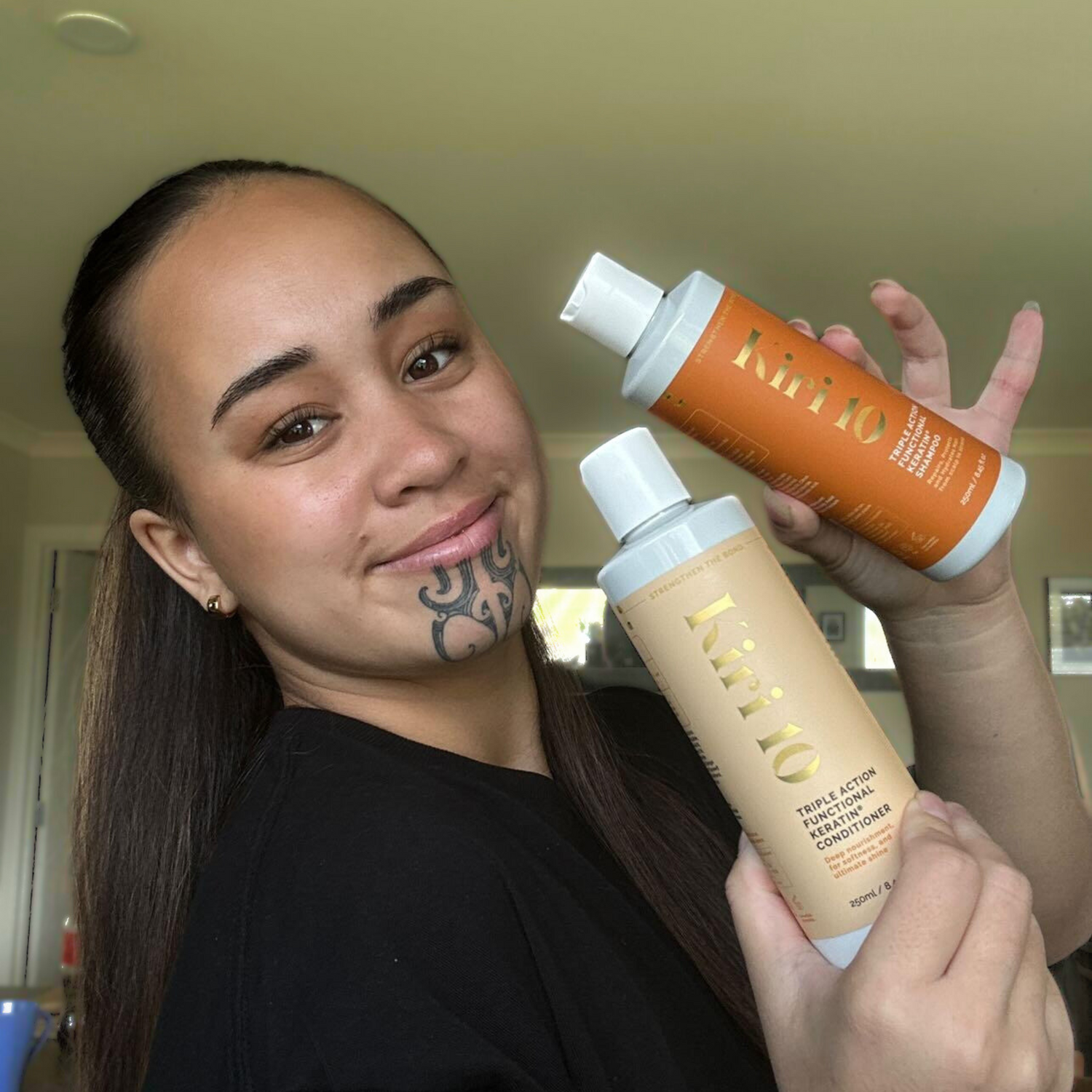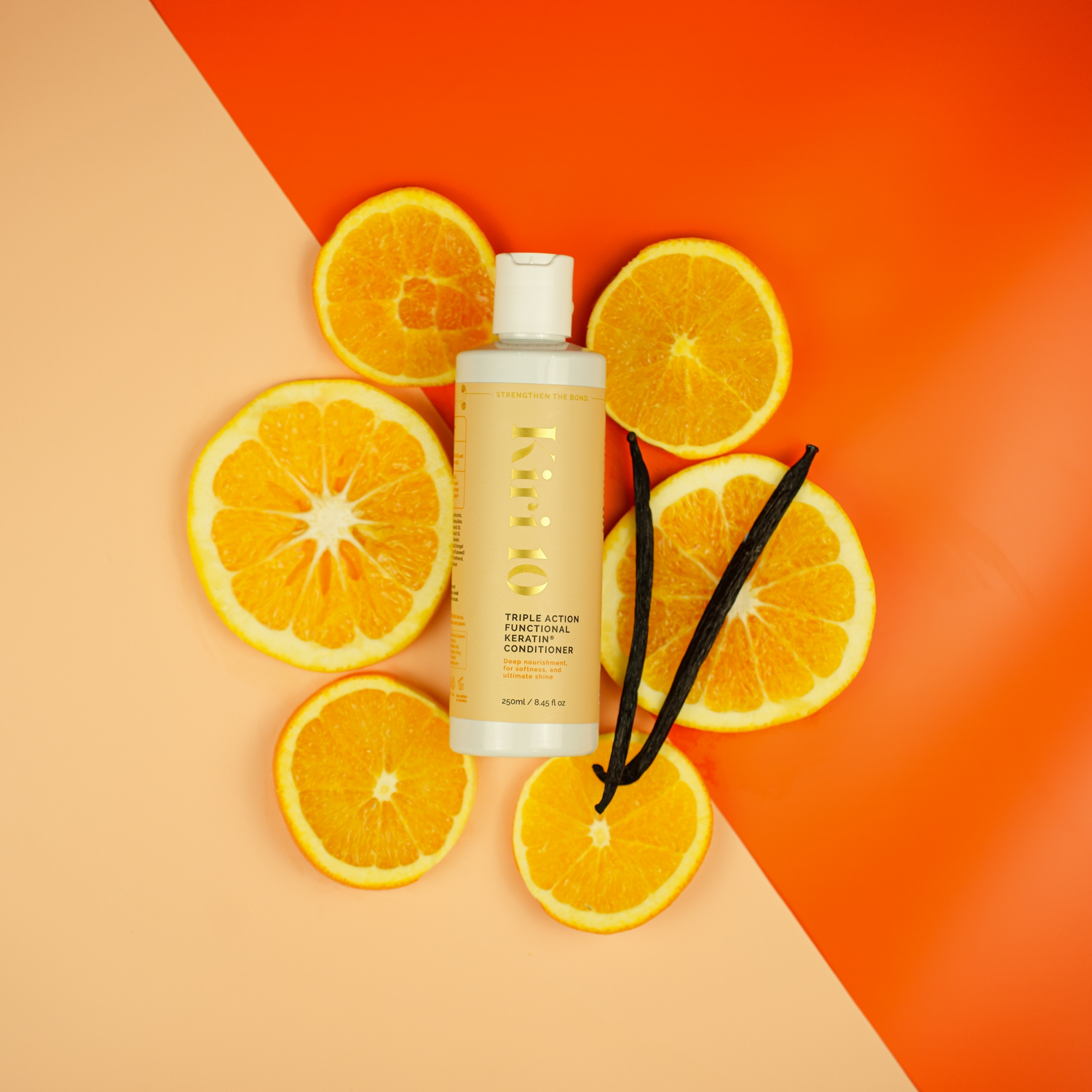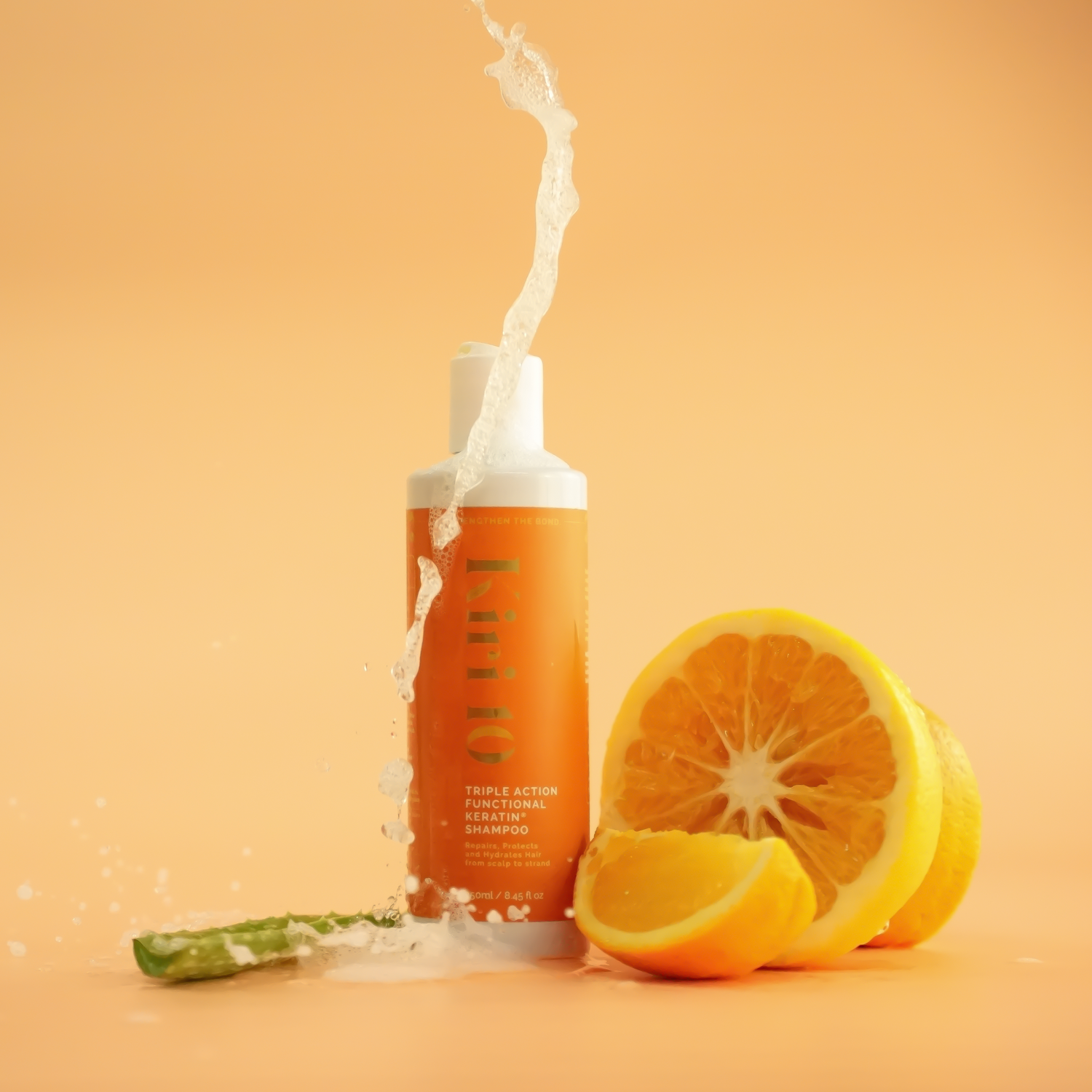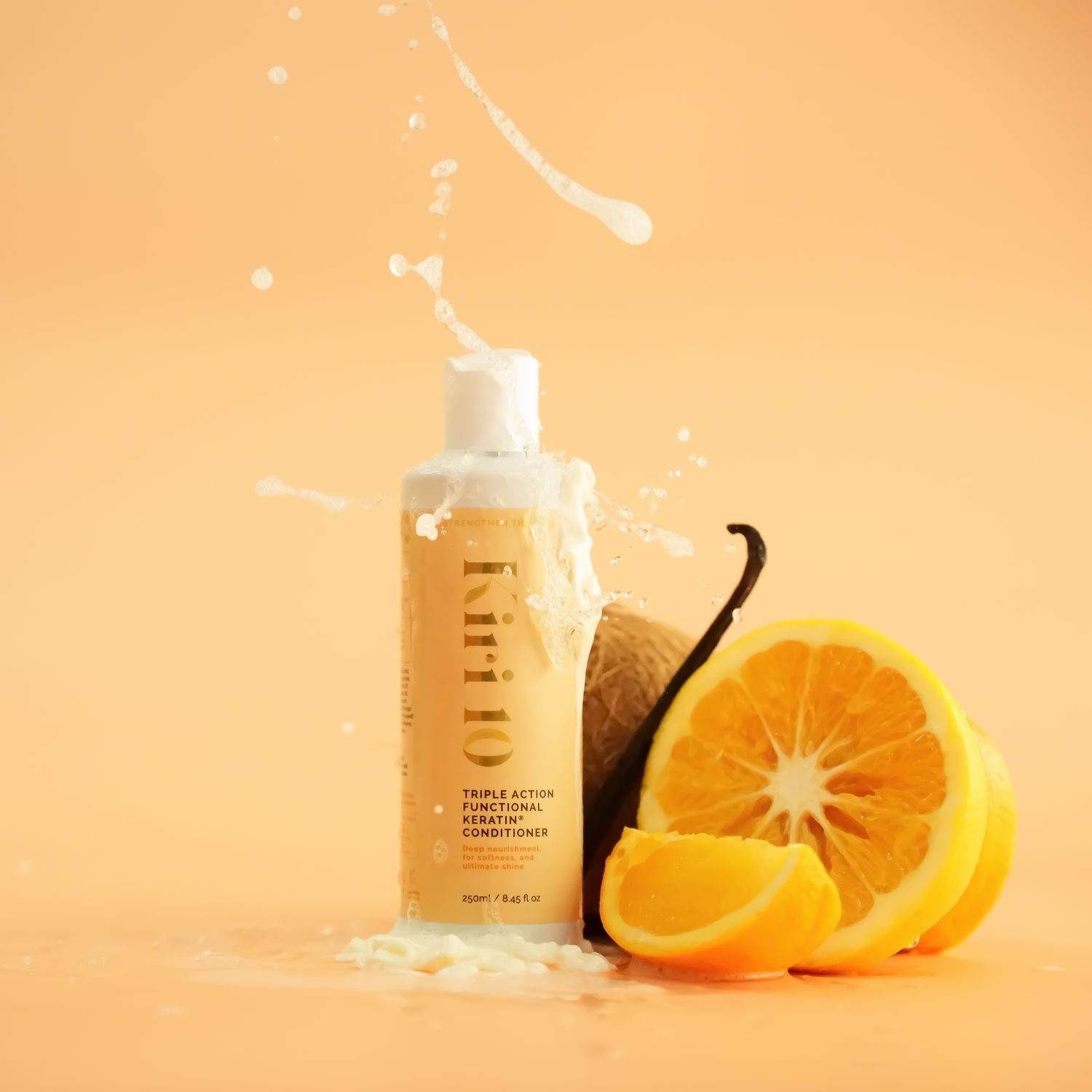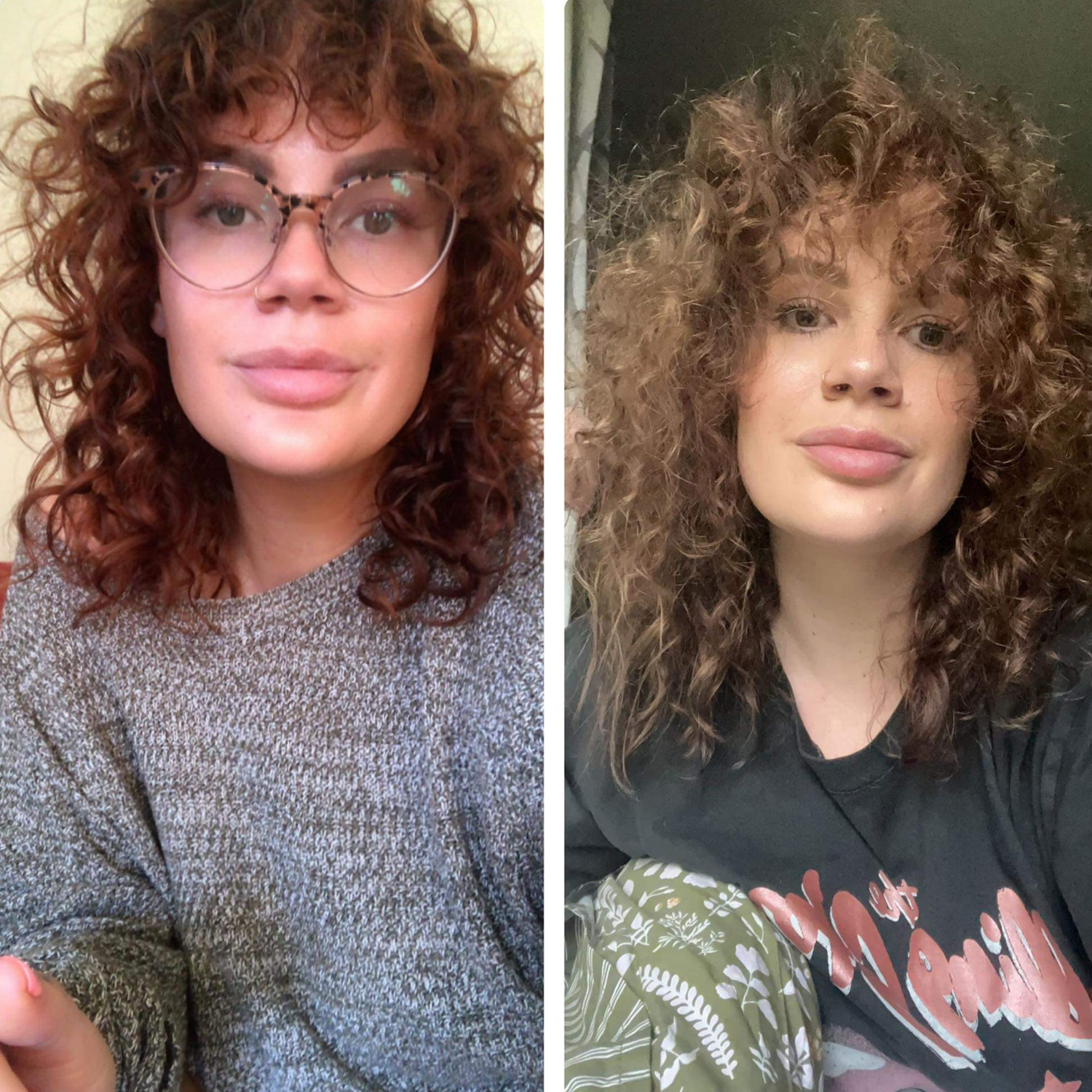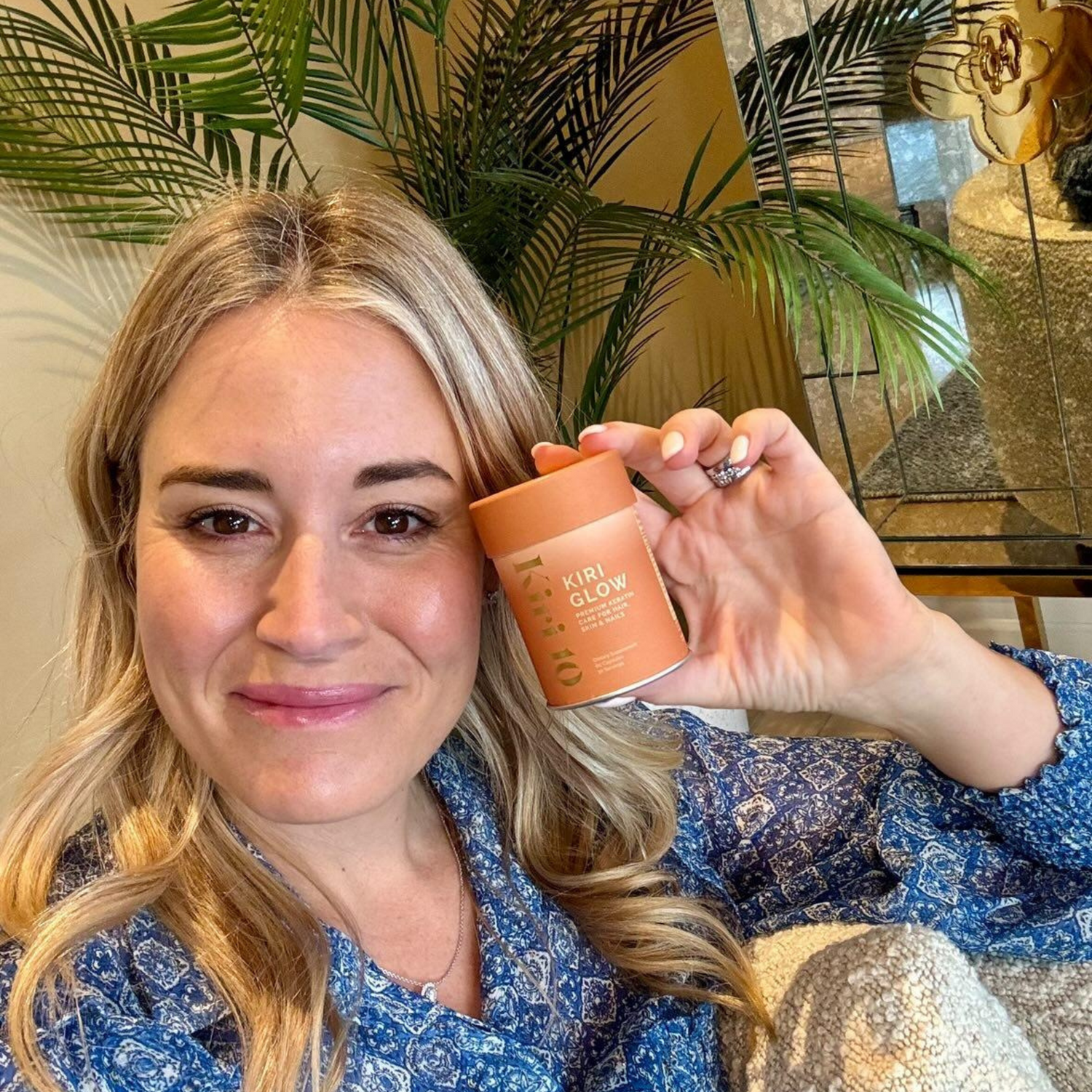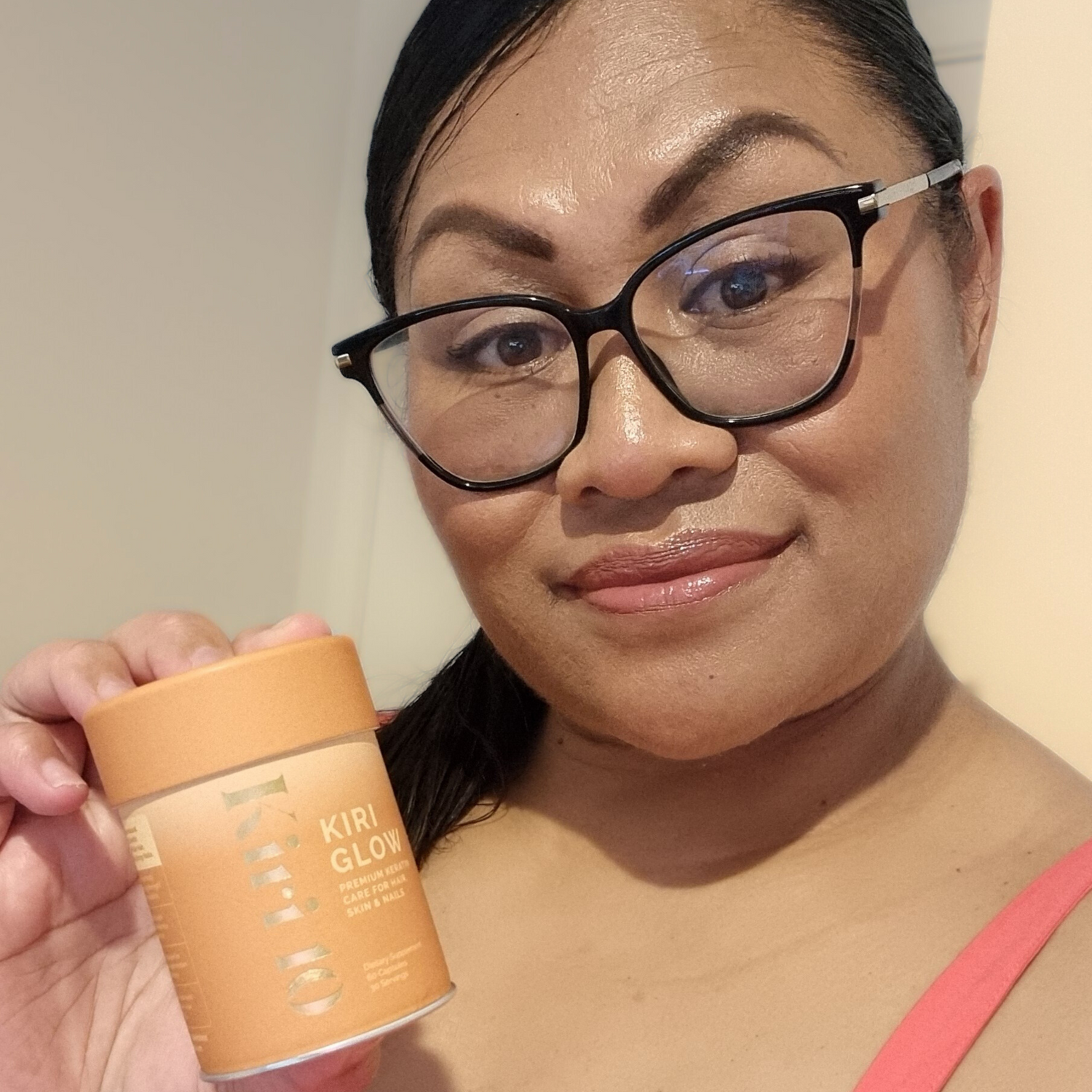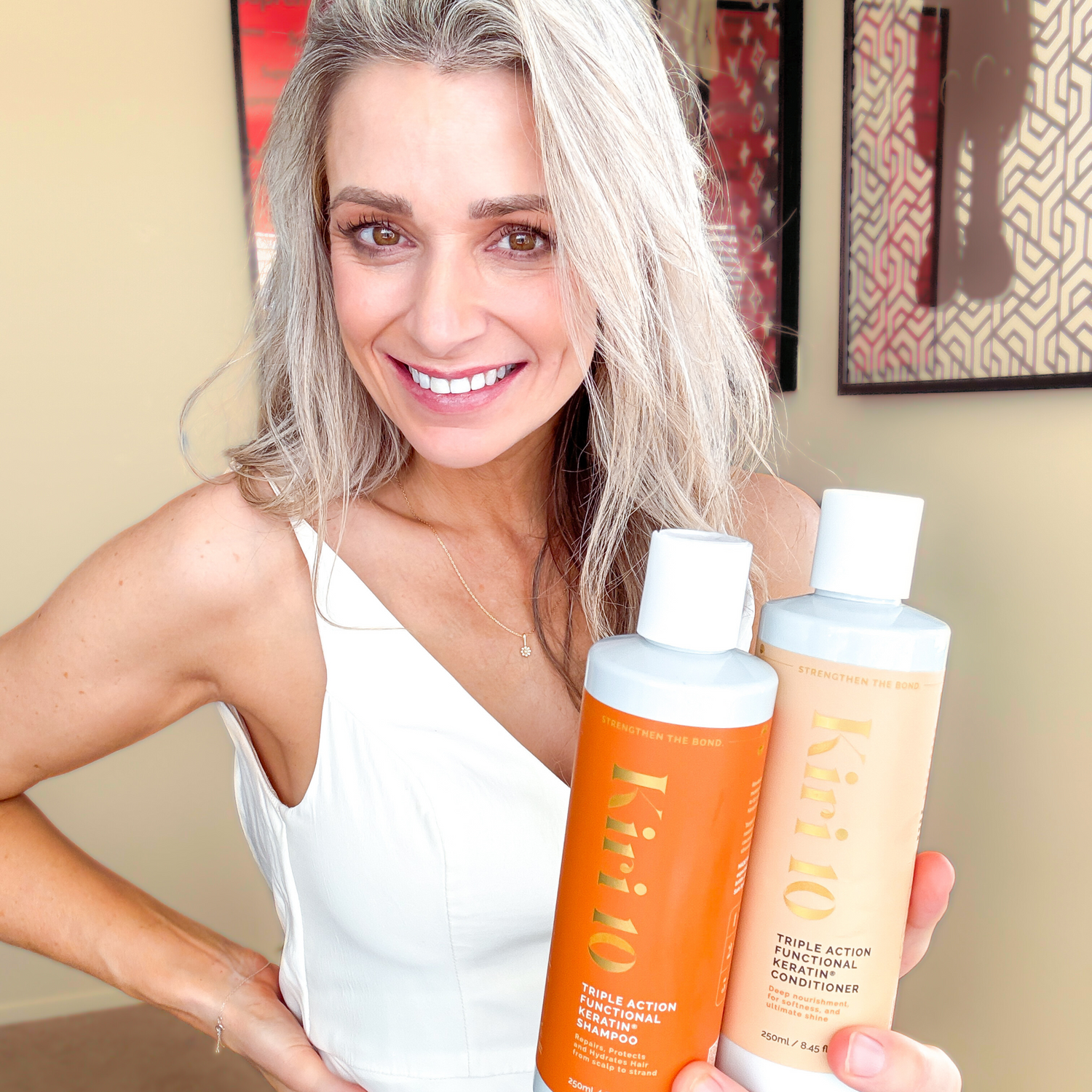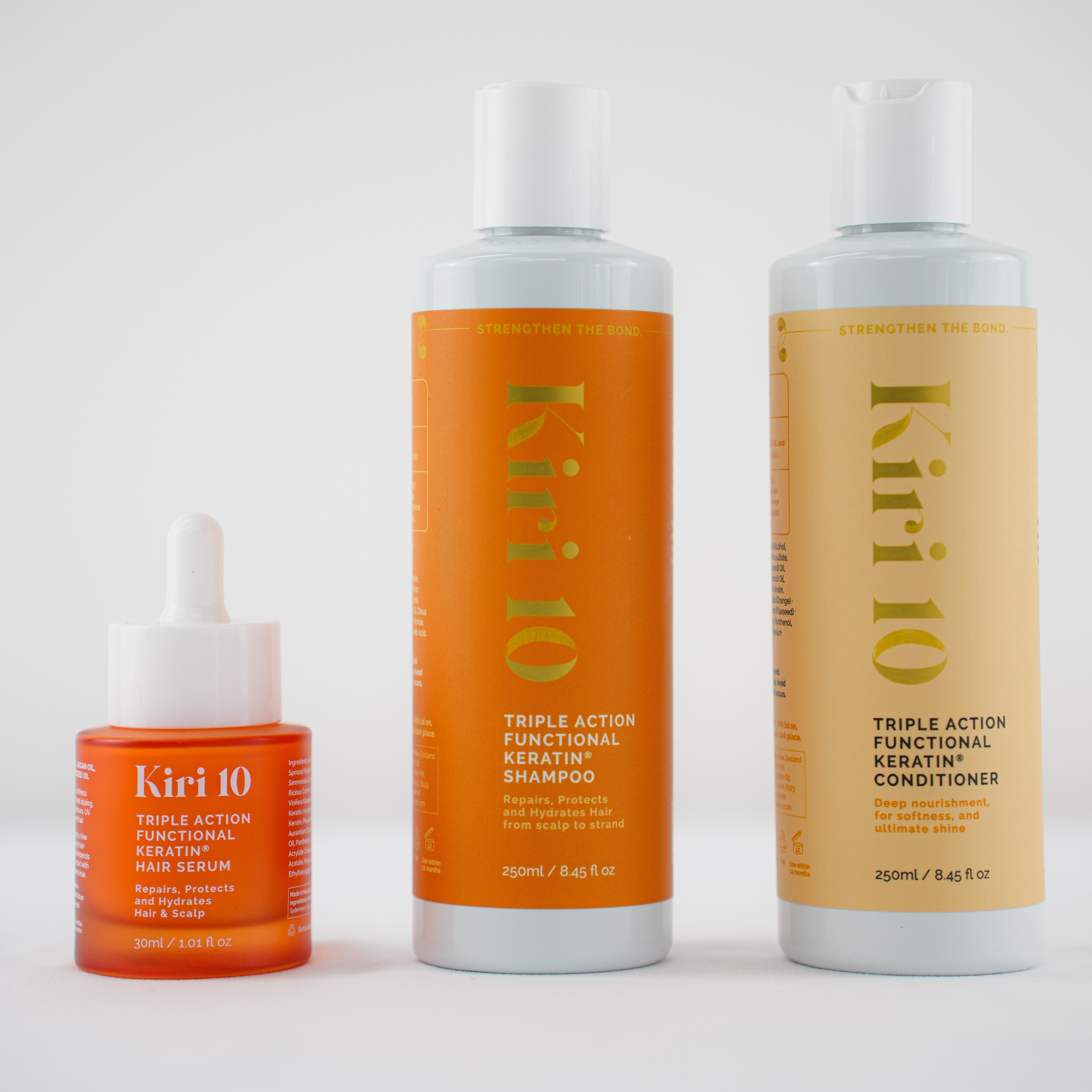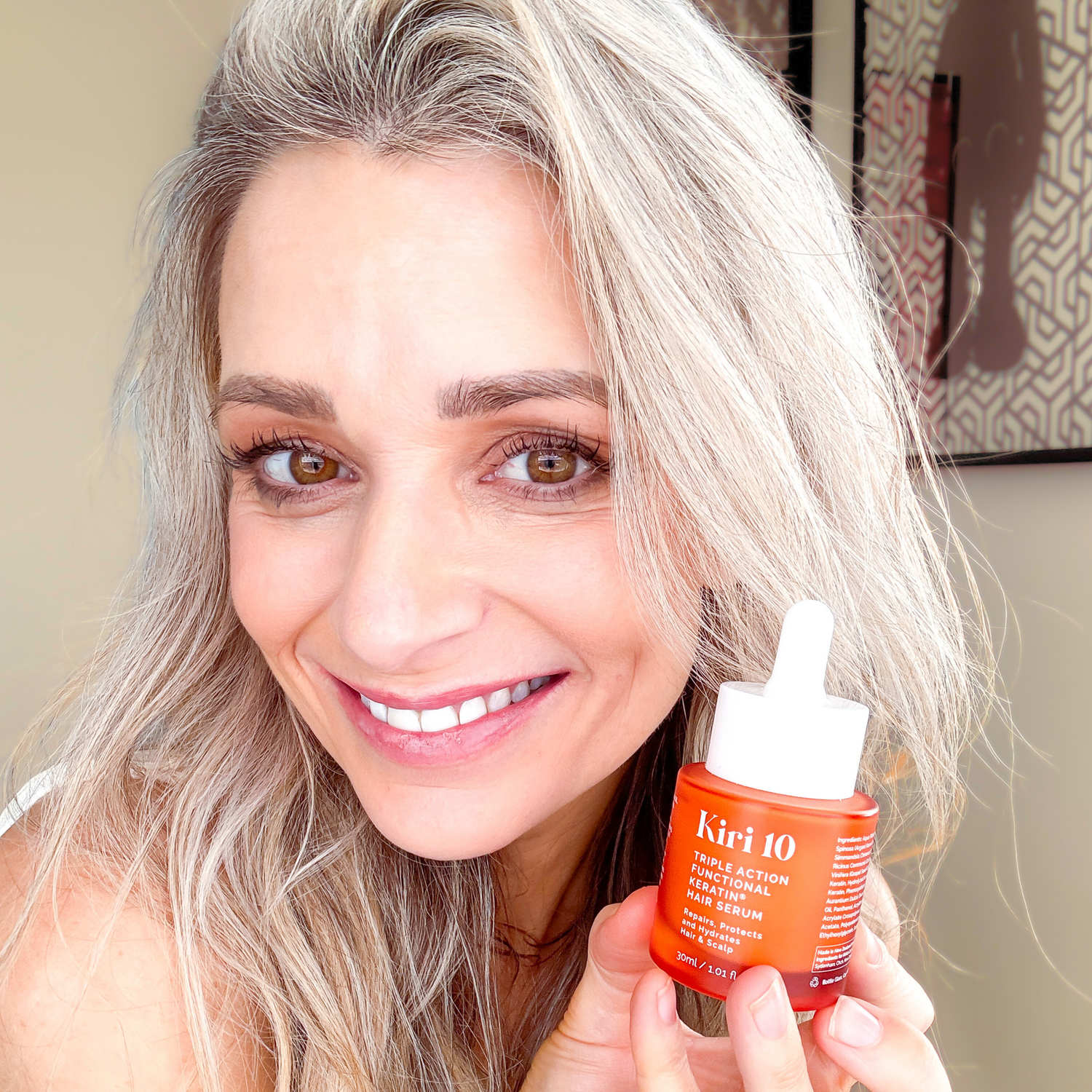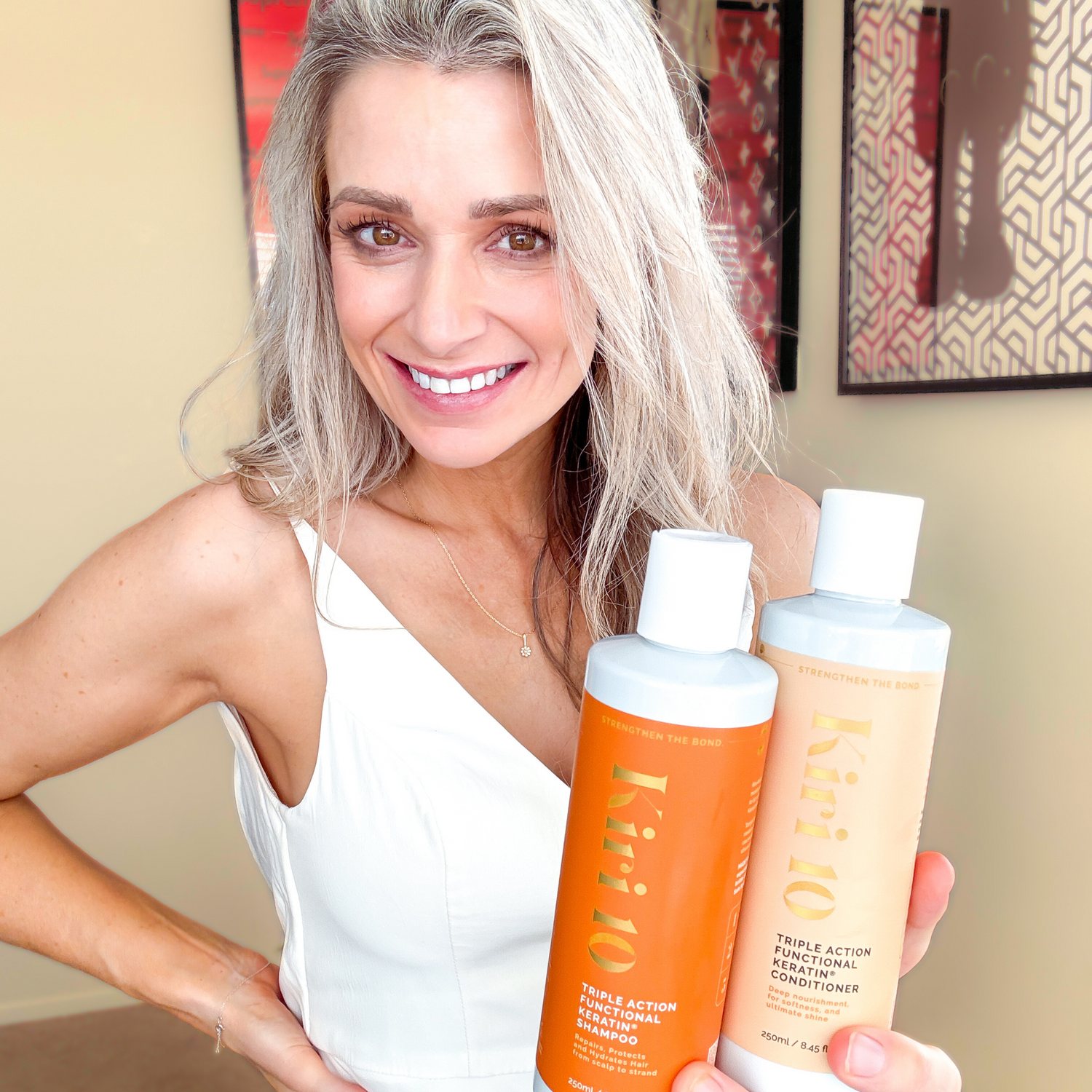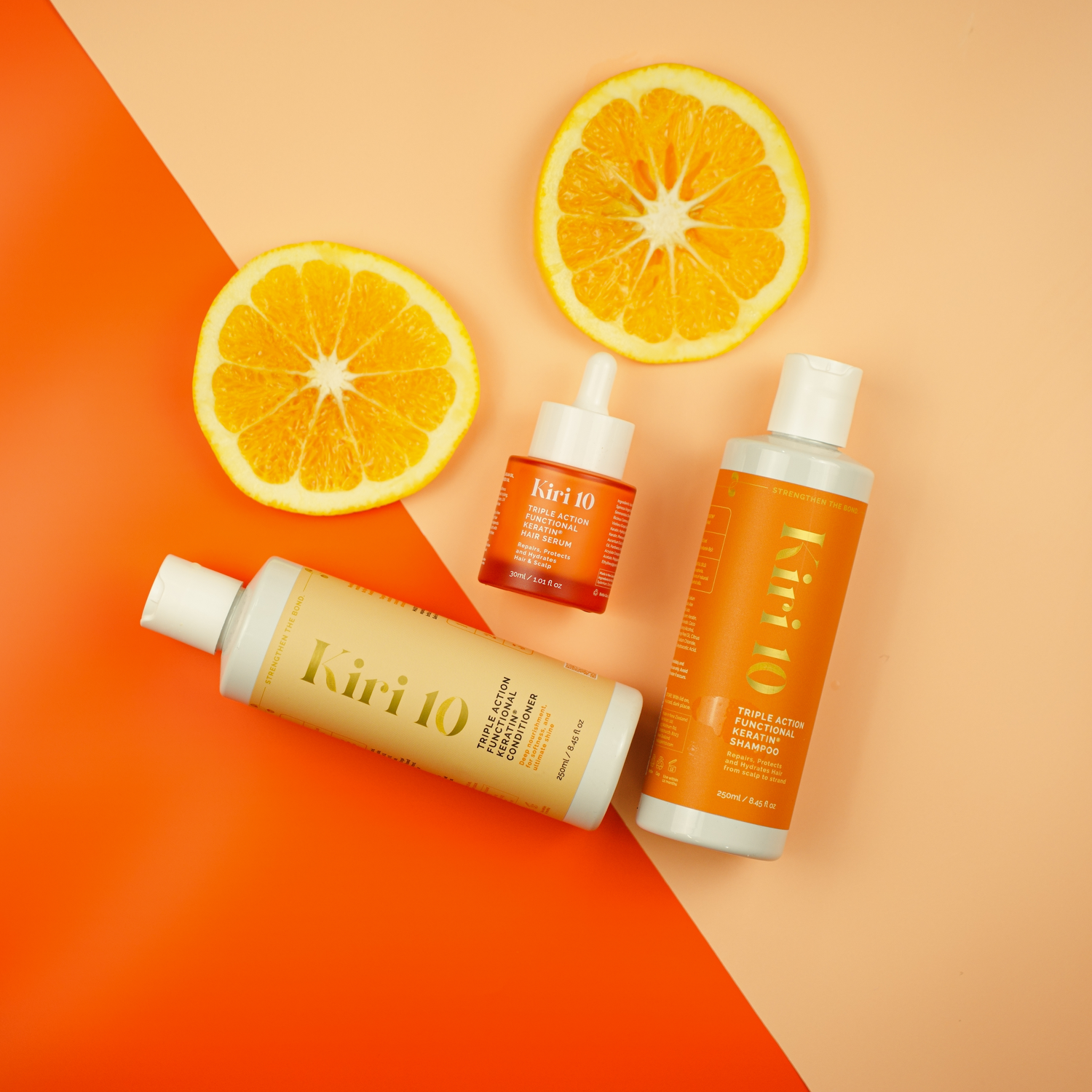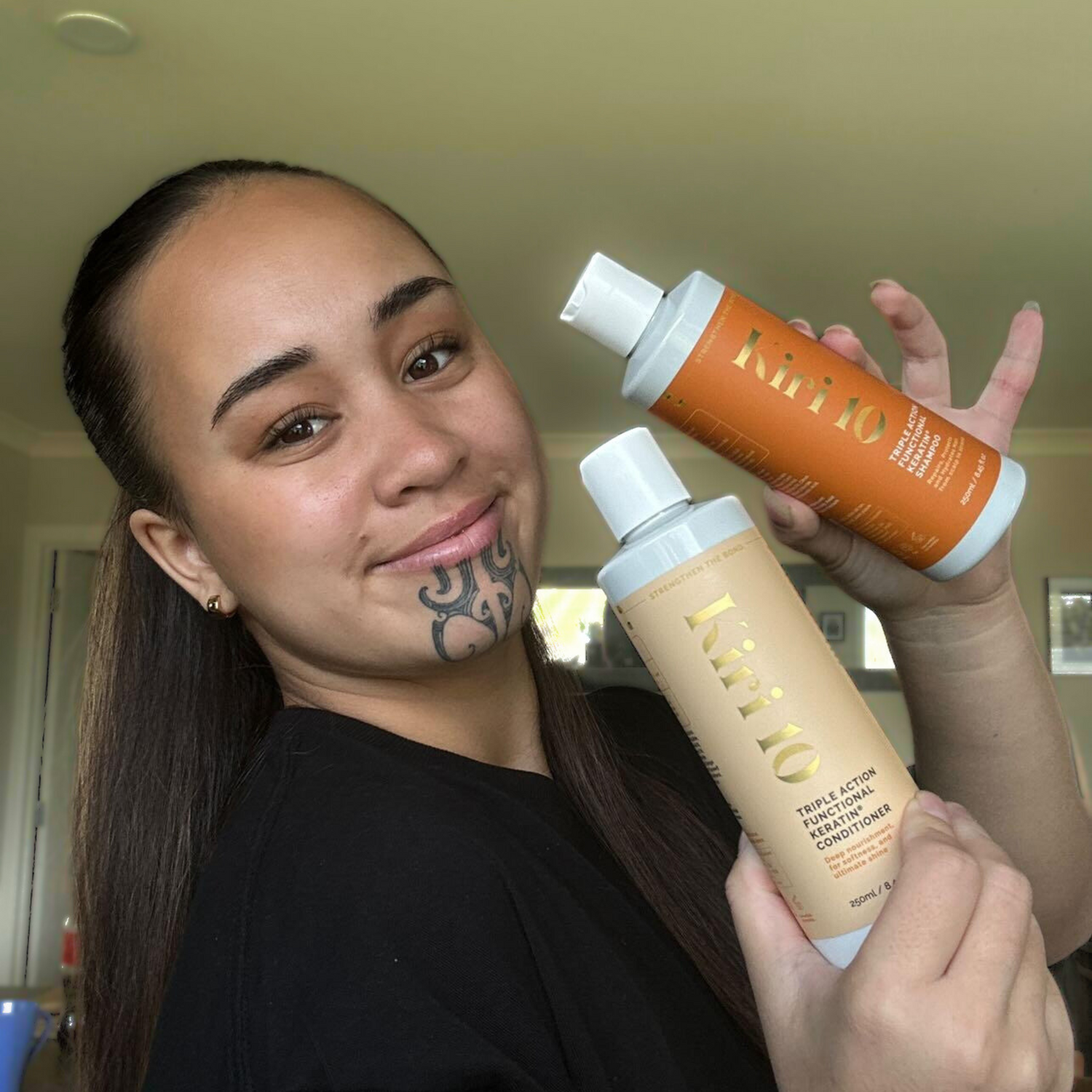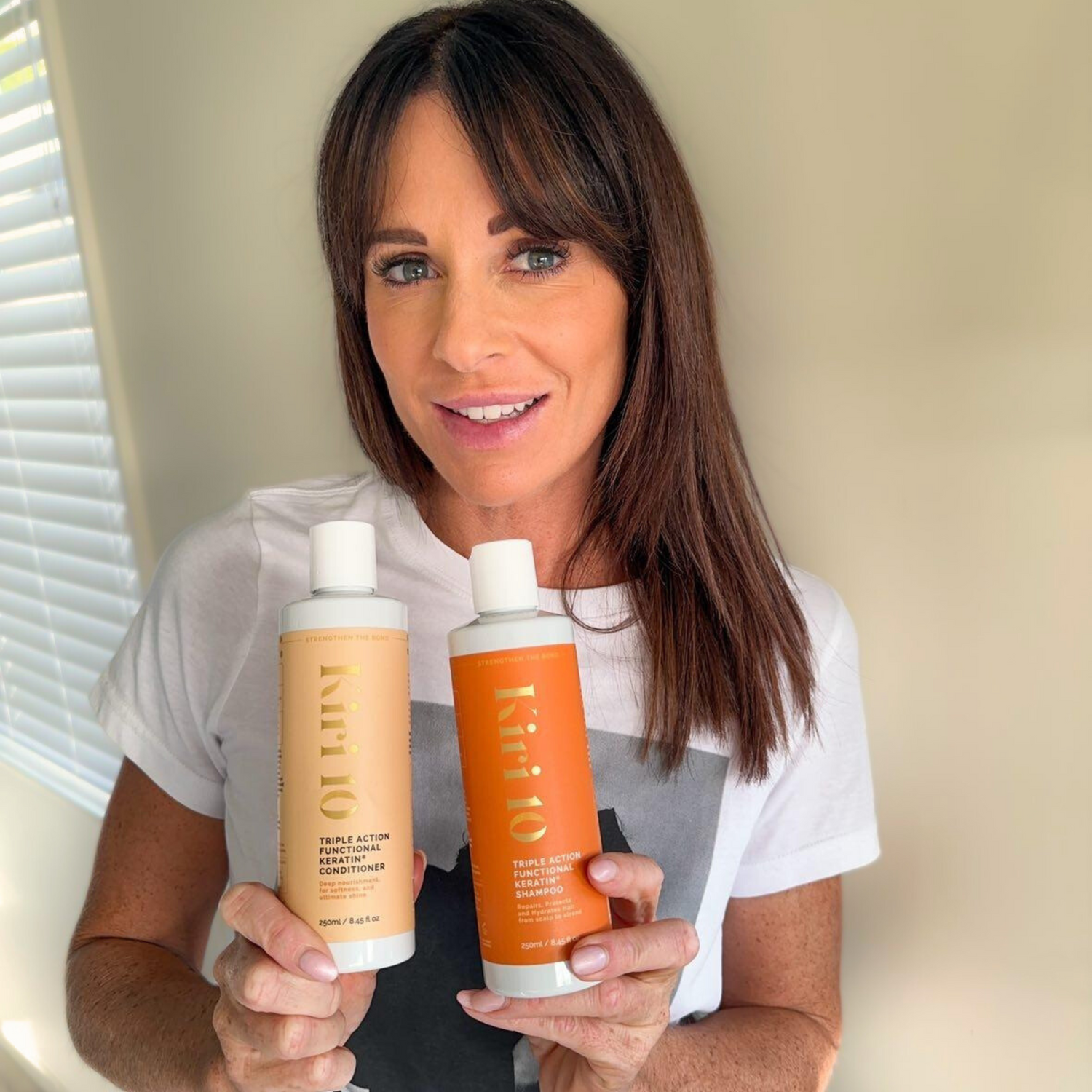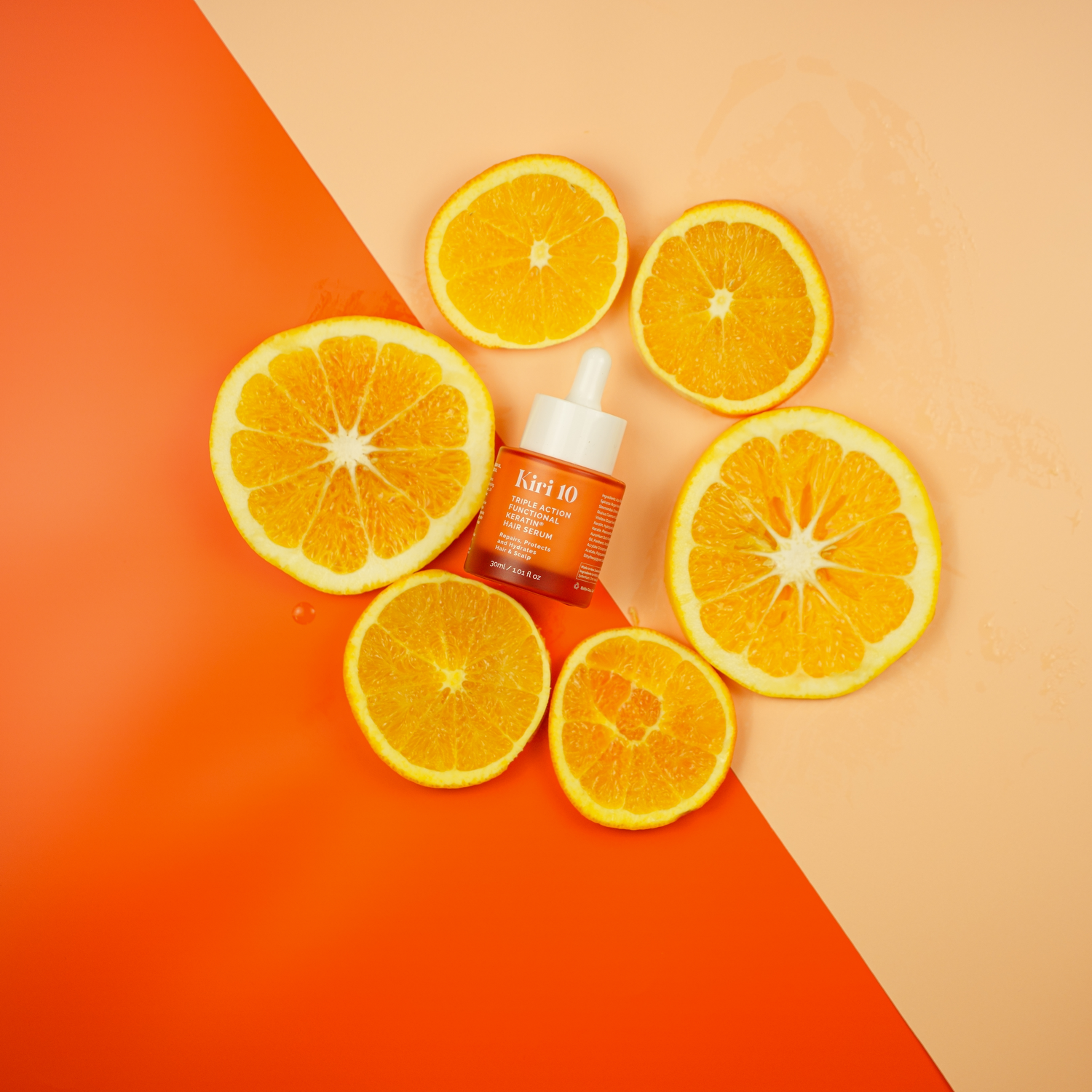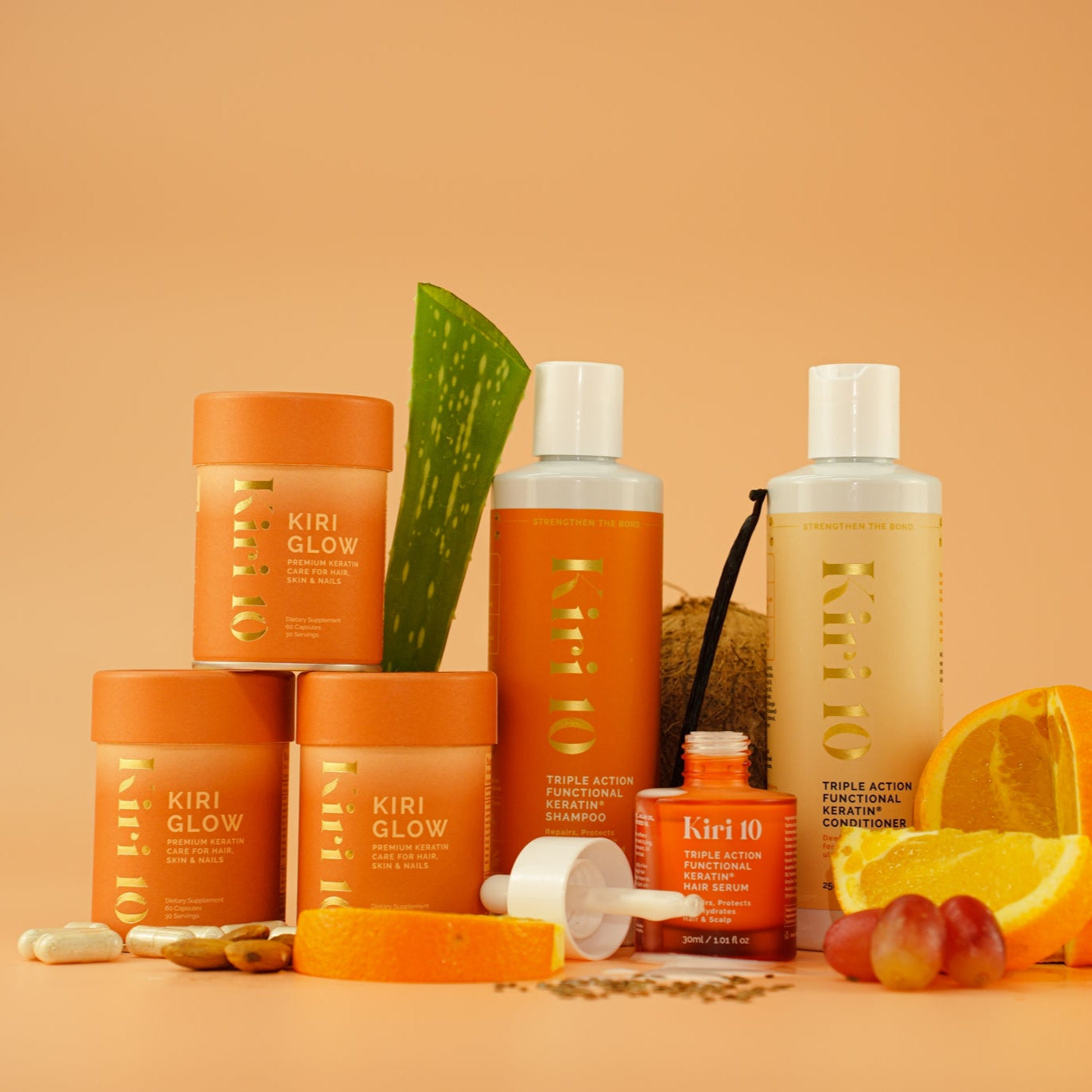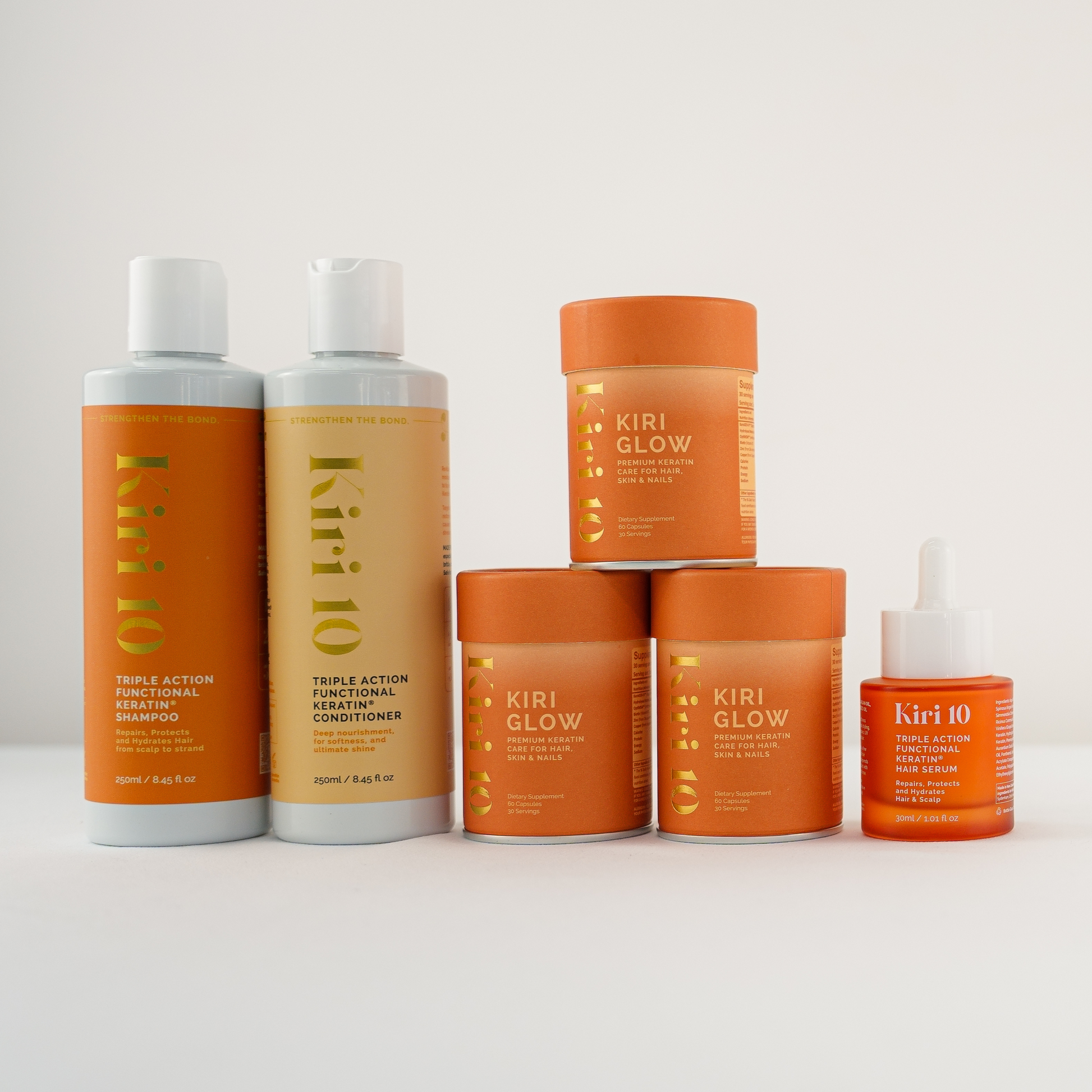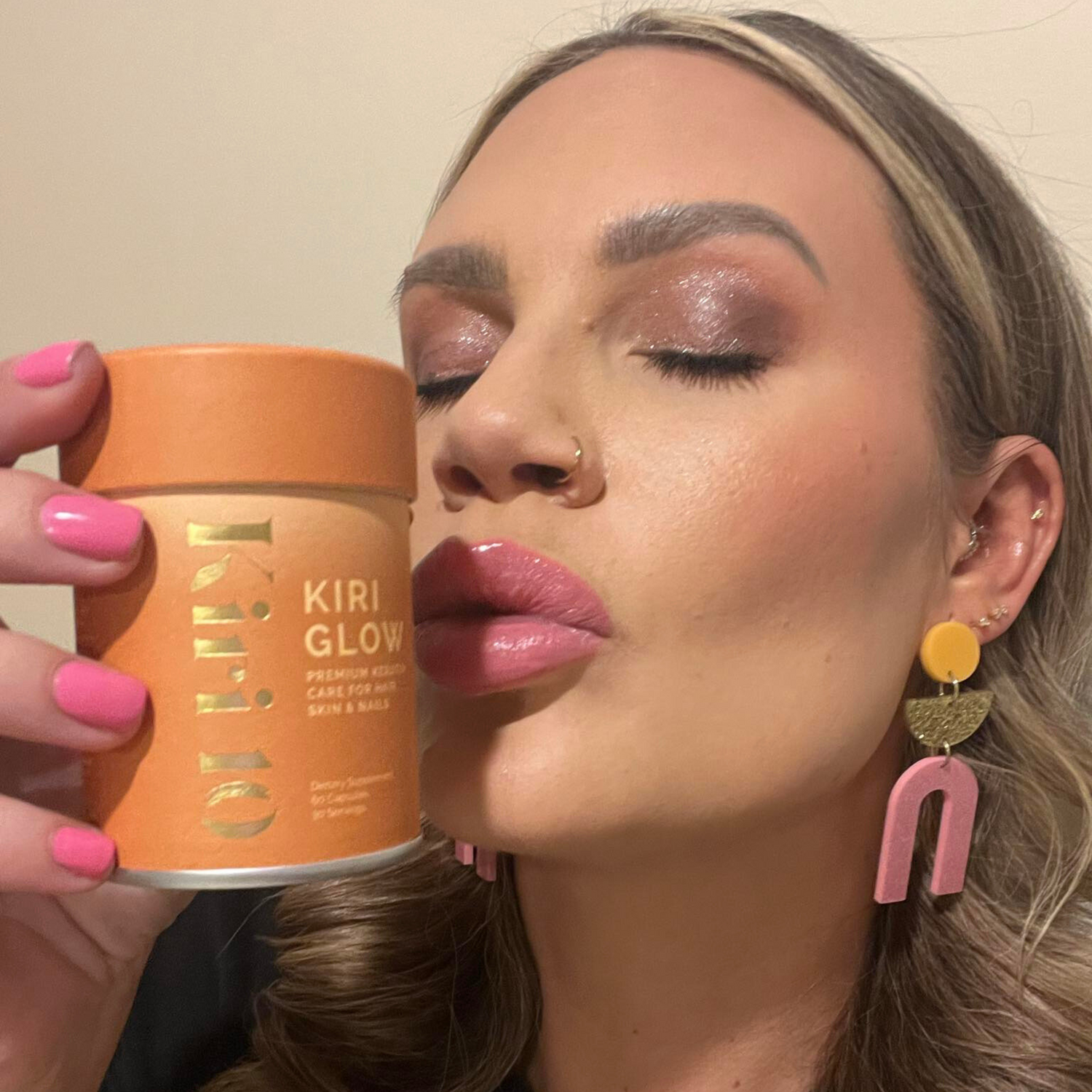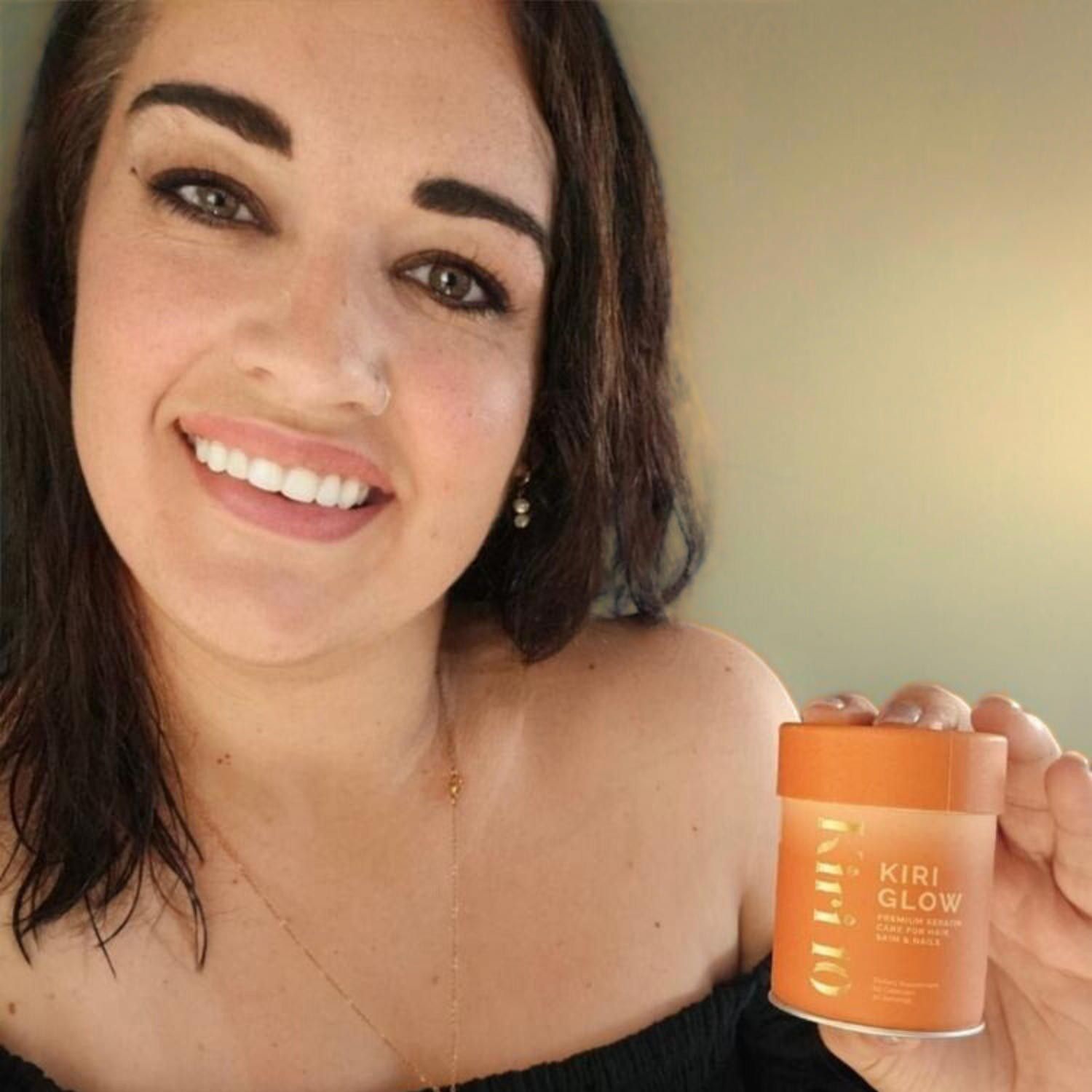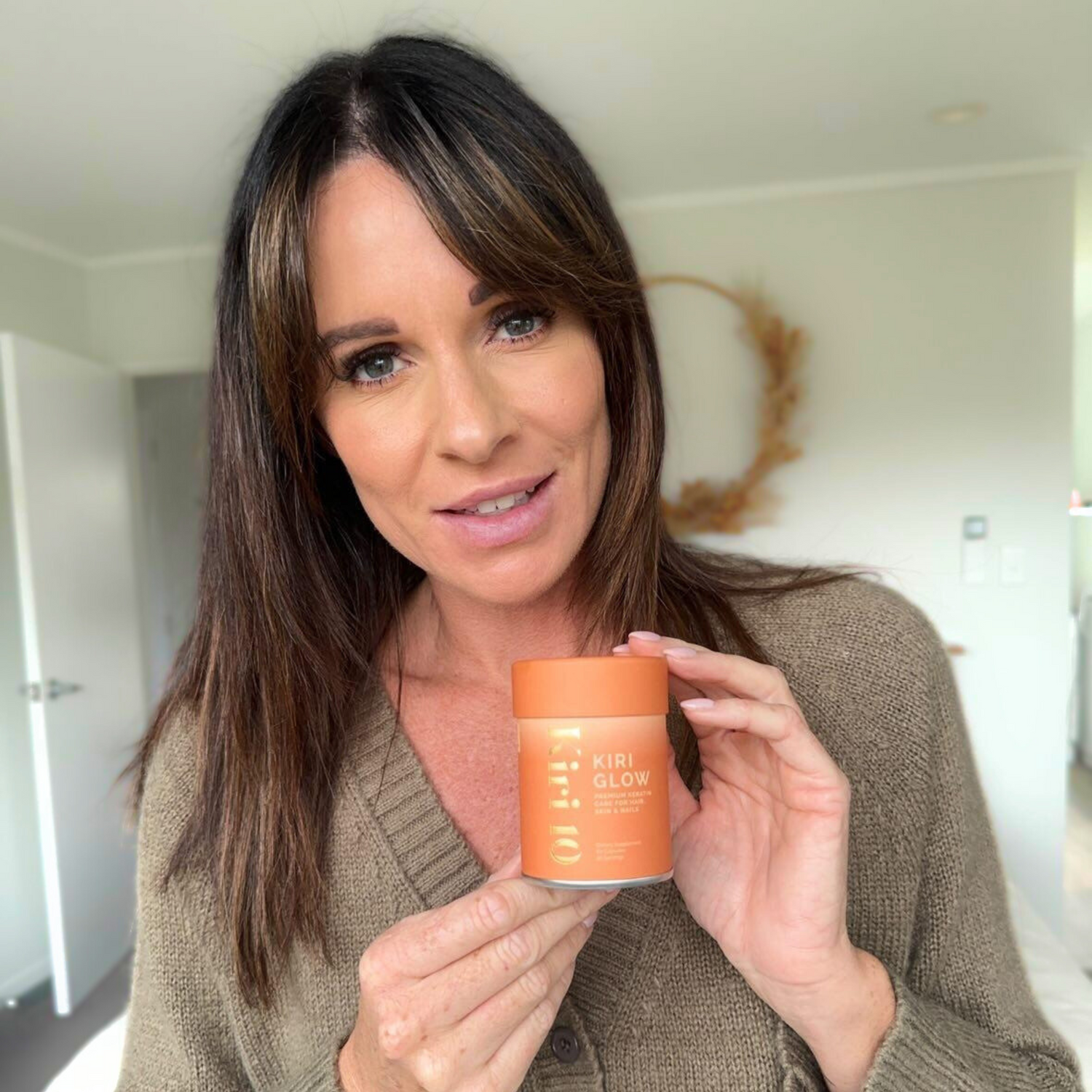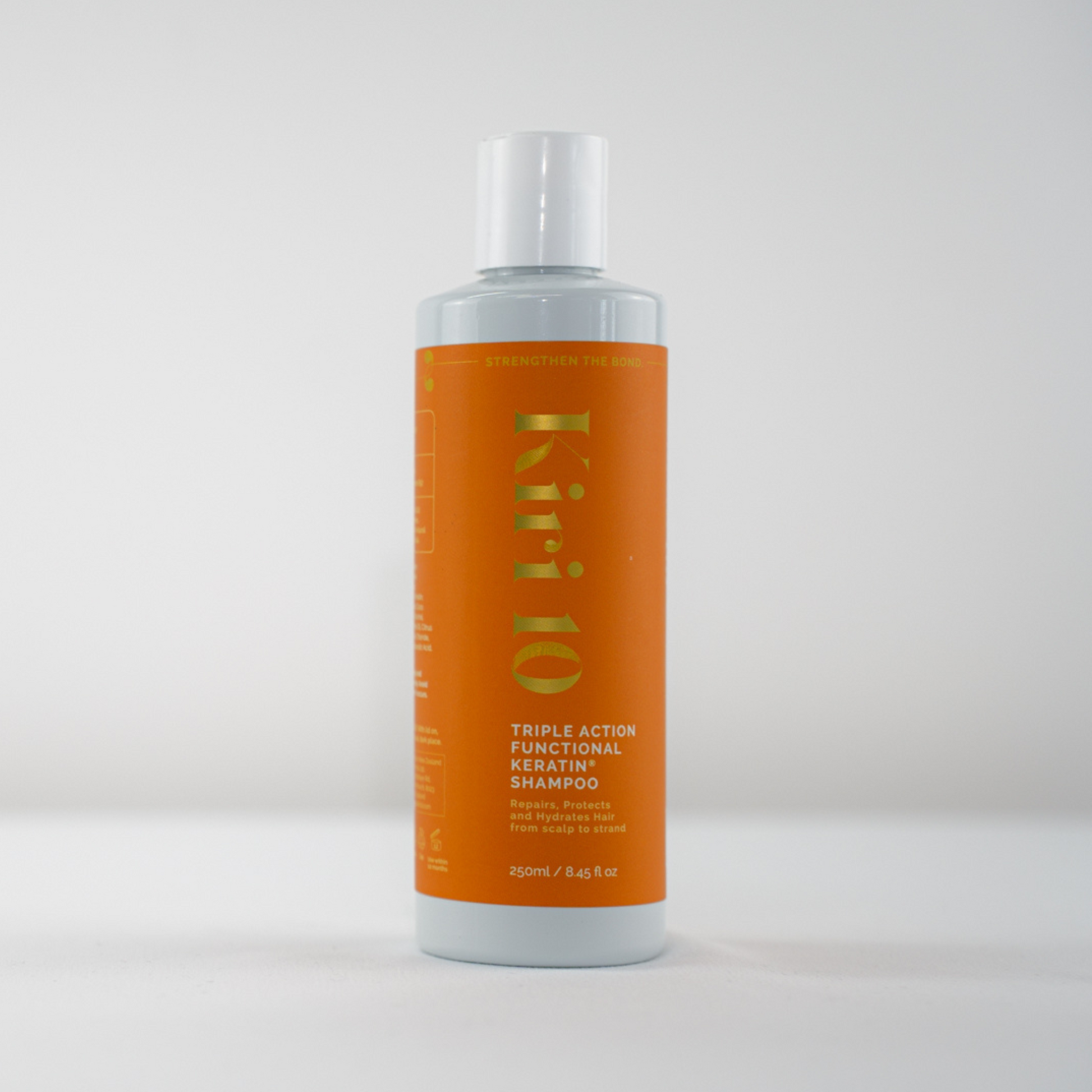The Hidden Culprit Behind Your Hair Struggles: How Scalp Inflammation Sabotages Your Hair Goals
Your scalp is the foundation of everything your hair can achieve. Yet when it comes to hair troubles—thinning strands, persistent itchiness, flakes that won't quit, or stubborn dryness—inflammation is the silent saboteur operating beneath the surface. Far from being merely cosmetic, scalp inflammation disrupts your hair's natural ecosystem, creating the perfect storm for breakage, shedding, and lacklustre locks.
The brilliant news? Inflammation is entirely addressable when you understand what's happening and how to tackle it with science-backed precision.
Understanding the Inflammation-Hair Loss Connection
Scalp inflammation represents your body's immune response to irritation, infection, or environmental stressors12. Research published in the National Center for Biotechnology Information demonstrates that approximately 71% of patients with male and female pattern hair loss exhibit perifollicular inflammation1. This isn't coincidental—chronic inflammation signified by lymphocytes and histiocytes appears in roughly half of tissue specimens from hair loss patients1.
When your scalp becomes inflamed, several critical processes are disrupted:
-
Blood flow restriction limits nutrient delivery to follicles3
-
Follicular miniaturisation occurs as inflammation damages the hair growth environment1
-
Hair cycle disruption leads to premature shedding and delayed regrowth4
-
Barrier function compromise makes the scalp vulnerable to further irritation4
Clinical research shows that inflammatory infiltrates of CD4+ T-cells at the follicular bulge may be the culprit behind impaired hair cycles and successive hair loss1. Simply put, when inflammation takes hold, your follicles become stressed, shrink, and struggle to produce healthy hair.
Recognising the Signs: When Your Scalp Sends SOS Signals
Scalp inflammation manifests through various symptoms that often go unrecognised as connected issues25:
-
Persistent itchiness or burning sensations
-
Redness, soreness, or visible irritation
-
Flaking, scaling, or stubborn dandruff
-
Increased hair shedding or noticeable thinning
-
Scalp sensitivity or reactions to products
-
Tight, uncomfortable sensations
Research indicates that scalp conditions like seborrheic dermatitis affect the hair before it even emerges from the follicle, with oxidative stress playing a crucial role in premature hair loss4. Understanding these warning signs allows for early intervention—before permanent damage occurs.
The Science Behind Anti-Inflammatory Scalp Care
Microinflammation—low-grade inflammation occurring at the cellular level—has been directly linked to hair disorders through extensive dermatological research3. Studies show that certain cells within hair follicles, including dermal papilla and bulge cells, can produce inflammatory molecules that directly contribute to hair loss3.
The scalp's microbiome also plays a crucial role. Research published in PubMed reveals that scalp microbial dysregulation is implicated in multiple conditions, including alopecia areata, seborrheic dermatitis, and scalp psoriasis6. When beneficial bacteria are disrupted, harmful microorganisms proliferate, creating a pro-inflammatory environment that compromises follicular health7.
Clinically-Proven Anti-Inflammatory Ingredients for Scalp Health
Not all ingredients are created equal. These are some of the most research-backed and scalp-loving anti-inflammatories in the Kiri10 range:
🧴 Functional Keratin® - The Cellular Repair Specialist
Unlike standard hydrolysed keratin, Functional Keratin® offers a patented blend of three distinct keratin types that achieve a 91% bio-match with your natural keratin8. Clinical research demonstrates that intradermal keratin injection promotes hair follicle formation and subsequent hair growth through extracellular interaction with hair-forming cells8.
This advanced keratin works by:
-
Reducing oxidative stress at the cellular level8
-
Promoting dermal papilla cell condensation for healthier follicle function8
-
Supporting hair germ formation through P-cadherin expression8
-
Calming inflammation whilst rebuilding structural integrity
🍊 Sweet Orange Essential Oil - The Circulation Enhancer
The d-limonene compound in sweet orange oil provides potent anti-inflammatory and antioxidant effects910. Research published in Pharmaceuticals journal shows that limonene significantly reduces prostaglandin E2 (PGE2) and nitric oxide (NO) production in inflammatory conditions9.
Clinical studies demonstrate:
-
Significant reduction in inflammation markers in tissue studies10
-
Enhanced circulation to follicles through vasodilation10
-
Antimicrobial properties that support scalp microbiome balance10
-
Stress-reduction benefits that may lower cortisol-induced scalp inflammation
🌿 Aloe Vera Juice - The Soothing Powerhouse
Multiple clinical trials confirm aloe vera's anti-inflammatory efficacy. A double-blind, placebo-controlled study involving 44 patients with seborrheic dermatitis found that aloe vera treatment resulted in significant improvement in 58% of patients compared to just 15% in the placebo group11.
Research shows aloe vera:
-
Significantly reduces UV-induced erythema and scalp irritation12
-
Decreases scaliness, pruritus, and inflammatory sites in seborrheic dermatitis11
-
Provides superior anti-inflammatory effects compared to 1% hydrocortisone in clinical trials12
-
Delivers vitamins, enzymes, and amino acids that actively heal damaged tissue
💧 Pro-Vitamin B5 (Panthenol) - The Barrier Rebuilder
Extensive clinical research demonstrates panthenol's dual anti-inflammatory and regenerative properties. Studies show that dexpanthenol enhances cell viability whilst significantly reducing apoptotic markers (Caspase3/9) and senescence indicators (p21/p16)13.
Key benefits include:
-
Enhanced barrier function with measurable TEWL improvement1415
-
Increased dermal papilla cell proliferation and hair follicle recovery13
-
Upregulation of VEGF expression for improved follicular blood supply13
-
Reduction in inflammatory cytokines that damage hair follicles
🧂Zinc - The Immune Modulator
Research consistently demonstrates zinc's critical role in hair follicle health. Analysis of serum zinc concentrations in hair loss patients reveals that zinc deficiency correlates with rapid-onset hair loss conditions like alopecia areata and telogen effluvium16.
Zinc functions as:
-
A potent dose-dependent immunomodulator of hair follicles16
-
An inhibitor of hair follicle regression whilst accelerating recovery16
-
An antimicrobial agent with proven efficacy against scalp infections17
-
A barrier function supporter crucial for scalp health maintenance
🌰 Sweet Almond Oil - The Gentle Healer
Sweet almond oil's anti-inflammatory and emollient properties make it particularly suitable for sensitive, inflamed scalps1920. Rich in vitamin E and essential fatty acids, it provides deep nourishment whilst calming irritation21.
Clinical applications show:
-
Effective treatment for seborrheic dermatitis and scalp psoriasis20
-
Improved blood circulation and strengthened hair follicles19
-
Enhanced barrier function without clogging follicles21
-
Reduced inflammation and scalp sensitivite
🔬OptiMSM® - The Systemic Anti-Inflammatory
99.99% pure methylsulfonylmethane (MSM) provides systemic anti-inflammatory support. Research demonstrates that MSM treatment dramatically reduces hair loss in male mice through antioxidant and anti-inflammatory pathways22.
Studies reveal:
-
Significant reduction in 8-isoprostane levels (inflammatory markers)22
-
Enhanced vascular endothelial growth factor (VEGF) for improved follicular health22
-
Increased hair growth, follicle expansion, and follicle number compared to controls22
-
Dose-dependent hair growth promotion when combined with other actives
Creating Your Anti-Inflammatory Scalp Routine
Internal Foundation: Nutritional Support
Begin with KiriGlow capsules containing zinc and OptiMSM® to address inflammation systemically. Research shows that zinc's immunomodulatory properties are essential for hair follicle function16, whilst MSM provides antioxidant support that reduces inflammatory markers throughout the body22.
Gentle Cleansing: The Sulfate-Free Advantage
Choose coconut-derived cleansers over harsh sulfates like SLS. Research demonstrates that sulfate-free formulations significantly reduce scalp irritation, inflammation, and dryness2425. These gentler surfactants cleanse effectively whilst preserving the scalp's natural barrier function25.
Targeted Treatment: Anti-Inflammatory Application
Apply hair serum containing functional keratin® and botanical anti-inflammatories to address specific areas of concern. Clinical studies show that topical anti-inflammatory treatments significantly improve scalp conditions when applied consistently26.
Scalp Massage: Mechanical Stimulation
Incorporate gentle scalp massage during cleansing to stimulate circulation without causing irritation. Research indicates that improved blood flow delivers essential nutrients to follicles whilst helping to reduce inflammatory buildup3.
Nutritional Synergy: Supporting Internal Balance
Complement topical treatments with omega-3 fatty acids, zinc, and antioxidants. Studies show that nutritional supplements with anti-inflammatory effects may be beneficial for hair disorders3, creating comprehensive support for scalp health.
The Microbiome Connection: Supporting Scalp Ecology
Recent research reveals that scalp microbiota plays a crucial role in maintaining homeostasis and mediating inflammation6. Microbial dysbiosis contributes to pro-inflammatory environments in conditions like alopecia areata, seborrheic dermatitis, and scalp psoriasis276.
Anti-inflammatory ingredients help restore balance by:
-
Reducing harmful bacterial overgrowth that triggers inflammation6
-
Supporting beneficial microorganisms essential for scalp health6
-
Strengthening barrier function to resist pathogenic invasion7
-
Calming immune responses that disrupt healthy microbial communities27
Long-Term Benefits: What to Expect
Clinical research demonstrates that consistent anti-inflammatory scalp care yields measurable improvements:
-
Reduced inflammatory markers within 2-4 weeks of treatment1211
-
Improved barrier function with decreased TEWL measurements1415
-
Enhanced hair growth parameters including follicle size and anagen duration813
-
Decreased shedding and breakage as follicular stress diminishes1622
-
Better scalp comfort with reduced itching, redness, and sensitivity1125
When Professional Consultation Is Essential
Seek dermatological evaluation if you experience:
-
Persistent inflammation despite consistent anti-inflammatory care
-
Rapid or patchy hair loss that may indicate autoimmune conditions
-
Severe scaling, pustules, or scarring suggesting bacterial or fungal infection
-
Systemic symptoms accompanying scalp issues
Medical professionals can provide targeted treatments including prescription anti-inflammatories, antimicrobials, or immunomodulators when appropriate2628.
Transform Your Hair from the Scalp Up
Your scalp is the soil from which healthy hair grows—and inflamed soil simply cannot support thriving follicles. By understanding the science behind scalp inflammation and implementing targeted anti-inflammatory strategies, you're not just treating symptoms; you're rebuilding the foundation for stronger, fuller, more resilient hair.
At Kiri10, our formulations combine clinically-proven anti-inflammatory ingredients with cutting-edge delivery systems. Our Functional Keratin®, carefully selected botanicals, and pure essential oils work synergistically to calm inflammation, restore barrier function, and optimise follicular health.
Every application is a step towards the scalp environment your hair deserves—balanced, nourished, and primed for growth.
Ready to address the root cause of your hair concerns? Transform your routine with Kiri10's science-backed approach to scalp health, and discover what happens when inflammation no longer stands between you and your hair goals.
This article is for informational purposes only and does not constitute medical advice. The information contained herein is not a substitute for and should never be relied upon for professional medical advice. Always consult with qualified healthcare professionals about the risks and benefits of any treatment, and before starting any supplement regimen.
